
LITERATURE & VISUAL ARTS JOURNAL
VOLUME XVIII • 2025



LITERATURE & VISUAL ARTS JOURNAL
VOLUME XVIII • 2025

Title: “Starry Night”
by Thuy Phung, MD PhD Faculty, Department of Pathology
Media: Fluorescent stain
The image looks like millions of stars in the night sky with Van Gogh-esque appeal. In fact, it is the opposite of stars, but rather the smallest of the natural world. These natural points of light brighten up the hearth and brings warmth to the heart.
Submit your art and literature for consideration in the 2026 journal to: ConnectiveTissueJournal@gmail.com
For entry guidelines, to view past journals, and for more information about joining a committee visit: https://www.texashumanities.org/connective_tissue
The works published in this journal were selected based on their artistic and literary merit and do not reflect the personal views of UT Health San Antonio, the Charles E. Cheever Jr. Center for Medical Humanities and Ethics, or the editorial staff.
Stephanie Batch (MS4): batchs@livemail.uthscsa.edu
LITERARY & COPYWRITE LEADS
Andrew Ta - Senior Lead/MS3: taa1@livemail.uthscsa.edu
Yasir Syed - Junior Lead/MS2: syedy@livemail.uthscsa.edu
Lauren Pan -Junior Lead/MS1: panl@livemail.uthscsa.edu
VISUAL ARTS & CURATOR/EXHIBITOR LEADS
Catherine Xie - Senior Lead/MS3: xiec@livemail.uthscsa.edu
Connie Hu - Junior Lead/MS2: huc2@livemail.uthscsa.edu
Zainah Siddiqi -Junior Lead/MS2: siddiqiz@livemail.uthscsa.edu
MUSIC LEADS
Sophia Koo - Sr. Lead, MS3: koos1@livemail.uthscsa.edu
Raiye Mathewos - Jr. Lead, MS1: mathewos@livemail.uthscsa.edu
Lia Quesada
Anthony Dapoz, Jr.
Jonathan Mathews
Nadav Rosenberg
Samantha Moore
Diego Rojano
Madigan Murray
Shwetha Prabakar
Maharajni Perla
Anisha Oommen
Rachael Pham
Karissa Lonon
Elizabeth Long
Jared Tuttle
Victoria Hart
Matthew Salazar
Lily Sumrow
Katherine Leskin Danko
Ren Smith
Heta Javeri
Sana Suhail (MS4): suhail@livemail.uthscsa.edu
PHOTOGRAPHY LEADS
Dawson Tan - Sr. Lead/MS4: tand@livemail.uthscsa.edu
Sammy Russell - Sr. Lead/MS4: russells1@livemail.uthscsa.edu
David Nweke - Jr. Lead/MS3: nweked@uthscsa.edu
Zoey Truong - Jr. Lead/SHP: zoeytruong0305@gmail.com
SOCIAL MEDIA AND OUTREACH LEADS
Richa Sinkre - MS3: sinkre@livemail.uthscsa.edu
Sophia Sparagana - MS2: sparagana@livemail.uthscsa.edu
Hans Loja - MS1 liaison, Joanna Simmons - Nursing liaison, Kelechi Elechi - Graduate School liaison, Ricardo Sosa Silva - Dental liaison
Brianna Guerin - SHP liaison
SELECTION PANEL
Aamerah Haque
Dang Nguyen
Theresa Vanderventer
William Langston
Joanne Wu
Maggie Lee
Theodore Margo
Lynnlee Poe
Beverly Hu
Angela Ge
Phuongthy Tran
Ally Wong
Melissa Donate
Rithika Proddutoor
Amin Golamy-Sadig
Anna Perhach
Chetana Murali
Edgar Hinostroza
Sammy Russell
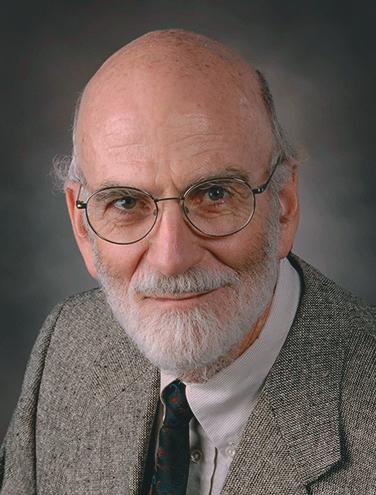
Vick is remembered fondly by his devoted family and friends, especially for his dry wit and pithy, erudite commentary. His quiet and gentle way left an indelible mark on all of us. He was a doctor and professor who loved teaching and reading in equal measure to carpentry and hiking the trails behind his home in Boulder, CO. Until recently you might have mistaken him for a ranch hand at the house he renovated near Bandera, TX, where he wrangled juniper, built barbed-wire fences, and helped his wife Dorothy transform their Hill Country property into a bird sanctuary for black-capped vireo, a threatened species. He built houses and water wells in Nicaragua and vaccinated children in Mexico. He helped lead groups of high school students on backpack trips in the New Mexico mountains and on canoe trips on the rivers in the Hill Country. He said the sunset was such a beautiful burnt orange because the sun was sad to leave Texas. He was a staunch environmentalist who put his money where his mouth was in going green. His concern for democracy led him to toast the Constitution every Thanksgiving. “Because we’re really going to need it!,” he would say. He was also the most humble man you'd ever meet.
Vick will be remembered by his colleagues at the University of Texas Health Science Center at San Antonio, where he was an emeritus professor of anatomy, specializing in the head and neck. He belonged to an esteemed group of founding faculty members who laid the groundwork for UT Health San Antonio; these pioneers played a crucial role in shaping the institution and establishing its reputation for excellence. The relationships he built with his fellow teachers and the technical and ethical questions they wrestled with in the classroom and lab were one of the pillars of his life. Another was the generations of medical and dental students he taught in his 45 years at UT Health San Antonio, during which he received many teaching awards. His mantra was that medicine was an art, not a science; he taught his students to treat the body's mysteries with respect and humility. One of his enduring contributions was to oversee the willed body program. It would enable thousands of his students to participate in anatomy lab courtesy of its “silent teachers.”
Of course, he, too, would become a silent teacher by donating his body to science. He created a dissection manual for the anatomy lab and then, in the 1990s, filmed and digitized every dissection so that students could access the material remotely. (He always included a corny pun at the beginning of every lecture.) He will also be remembered by the anatomy faculty at the Vellore Christian Medical School in Tamil Nadu, India, where he taught for two years on a leave of absence. Even in his emeritus status, he continued to inspire and mentor others as a volunteer in the anatomy lab.
Vick is survived by his wife, Dorothy of Boulder, daughters Jeannie Williams and Sarah (Robert) Heilbronner, grandchildren Rachel Heilbronner, Samuel Elmstrom, Adam Heilbronner and Camilla Elmstrom, brother Vern Williams, sister Ann Williams Gael, cousin Ed Franklin, nieces and nephews Eric Williams (Janie Powers), Finn Williams, and Elle Williams and Andrew Gael (Danielle Egic) and Gavin Egic-Gael. He was devoted to all of them.
Dear Reader,
Welcome to the 2025 edition of Connective Tissue, the literary and arts journal of the Charles E. Cheever, Jr. Center for Medical Humanities and Ethics at the University of Texas Health Science Center at San Antonio.
This collection comes into the world in a time of division. Political, social and rhetorical differences feel unbridgeable for many people in our country. Loneliness — characterized as an epidemic threat to the public health by the US Surgeon General in 2023 — is widespread. The health care community continues to be roiled by the aftereffects (and ongoing effects) of the COVID-19 pandemic. Structural changes to the way medical care is led, practiced, paid for and allocated threaten the well-being of patients and health workers alike.
Amidst all this, Connective Tissue’s brilliant student editors, led by MS4 editors-in-chief Stephanie Batch and Sana Suhail, call us to gather. With its theme “Stories from the Hearth,” this year’s journal evokes the warm places where families — both biological and chosen — gather to cook, tell stories, laugh and eat. The journal itself is a place of gathering, where writers and artists build community in craft.
From Hans Loja’s gorgeous “Say Campfire,” a poem in which exquisitely particular details evoke feelings of loss and reconnection that any reader might share, to vivid images of families and food by Phuongthy Tran, Catherine Xie, Beverly Hu, and Ania Rogalska, the journal is ripe with welcome. Here, also, is the particularity of a community of health workers and health trainees reflecting on the world. We parse out our feelings with phrases like “the SPIKES protocol” (in a poem by Andrew Ta) and “the cribriform plate” (in another by Loja). We use watercolor, acrylics, pencils, and oils to make images of scrubs and skeletons, forceps, and spinal hardware. There is beauty in the world we know.
Dear reader, please consider yourself invited to gather at this hearth. May you find some community and some sustenance here.
Sincerely,

Rachel Pearson, MD, PhD
Humanities Director, Charles E. Cheever, Jr., Center for Medical Humanities and Ethics
Stewart and Marianne Reuter Endowed Professor in Medical Humanities
Joe R. and Teresa Lozano Long Distinguished Professor in Bioethics
Assistant Professor, Division of Pediatric Hospital Medicine
Long School of Medicine at the University of Texas Health Science Center at San Antonio
Dear Reader,
In the past four years of medical school, our lives have been touched by peers, mentors, and patients; we have shaped our identities as individuals and physicians; and we have gathered countless stories that show where we came from and what we have become.
In Volume XVIII of Connective Tissue, we pay homage to the age-old tradition of gathering around the hearth, where stories pass from one generation to the next, each thread woven with memories, wisdom, and emotion. The hearth is more than just a source of warmth; it is a symbol of family, community, and identity; a place where personal histories and collective experiences meet to nourish the soul.
The hearth also parallels the compassion and healing found in healthcare environments. Just as stories shared by the fire offer comfort and connection, the narratives of patients, caregivers, and healthcare workers form the heart of clinical practice. It is where shared stories — of illness, recovery, and resilience — create bonds, offer solace, and bring light and warmth to even the most difficult moments.
This year’s issue explores the many interpretations of gathering at the hearth. We begin with its most literal depictions — "Kitty Toasting by the Open Fire", “Hearthside”, and "Of Woodstoves and Turnips" — before expanding into narratives that celebrate the diversity of backgrounds, perspectives, and cultures that shape our community. We have curated these stories to craft a collective hearth, one that uniquely belongs to the community at UT Health San Antonio, and beyond. Our hearth invites you, our readers, to reflect, connect, and share stories of your own.
In an exciting addition, we introduced music as a new medium for submission this year. We hope you will enjoy featured pieces, such as Music Category winner “From the Hearth”. Simply scan the QR codes on various pages throughout this issue to listen along as you read.
Our heartfelt thanks go to the Charles E. Cheever Jr. Center for Medical Humanities and Ethics for their long-standing support of Connective Tissue. We thank Dr. Kosub, Dr. Pearson, Dr. Dasco, and Tim Wallace for their guidance through this process. We thank our contributors for their submissions, without which this magazine could not be published. But most importantly, dear reader, we thank you – for picking up this magazine, for turning its pages, and for allowing these stories to meet your own. So we invite you to come, join us at the hearth. Listen to the crackle of the fire, feel the warmth in your soul, and connect with the people sitting around you. May these stories warm your spirit, and, perhaps, even become a part of yours.
Stephanie Batch and Sana Suhail Co-Editors in Chief
Long School of Medicine, Class of 2025
L LITERATURE
WINNER
"Meeting the Wind" 6
Braedon Schlechte PO POETRY WINNER
"The Drumstick End" 33
Raghad Said
55 55-WORD STORIES
WINNER
"Of Woodstoves and Turnips" 2
Jonathan Mathews
P PHOTOGRAPHY
WINNER
"An Exchange" 15
Damian Crow
HONORABLE MENTION
"Light to the Land" 42
Richard Usatine
M "From the Hearth"
Sandesh Puri 1
A "Kitty Toasting by the Open Fire"
Zainab Ansari 1
55 "Of Woodstoves and Turnips"
Jonathan Mathews 2
55 "Hearthside"
Braedon Schlechte 2
PO "Say Campfire"
Hans Loja 3
A "On a Scale of 1 to 10"
Leo Crockett 4
M "Mulberry"
Diego Rojano, Malak Husseinali, The Junes 5
P "A Kindling"
Lillian Agarwal 5
M MUSIC WINNER
"From the Hearth" 1
Sandesh Puri P VISUAL ART WINNER "On a Scale of 1 to 10" 4 Leo Crockett
HONORABLE MENTION "Joy" 17 Anukriti Singh
L "Meeting The Wind"
Braedon Schlechte 6
P "Center of the Hearth"
Maribel Salgado 10
A "The Post-Surgical Spine: A Hearth of Renewed Strength and Stability"
Sammar Ghannam 11
P "The Lighthouse"
Rory Williams 12
A "In Your Arms"
Lauren Lia Quesada 13
M "Frozen in Time"
Tony Jha and Maria Smereka-Hladio 14
P "An Exchange"
Damian Crow 15
55 "Newborn"
Maria Fernandez Falcon 16 A "Hidden Glory"
Lacy Lichtenhan 16 A "Joy"
Anukriti Singh 17
PO "Portrait of Resilience"
Kawika Dipko 18 PO "Folded Memories" Andrew Ta 19 A "Gathered in Filling"
Catherine Xie 20
P "A Day’s Work"
Jacob Luddington 21
PO "100 Worlds"
Matthew D. Myers 22
L "Of Many Moons"
A "Strength in Care: The Dragon’s Tale"
Anh Truong
PO "The Forgotten Heroes"
Andrew Ta
A "A Father and Daughter"
Phuongthy T. Tran
L "Posthumous Conversation"
Dara
A "Diffuse and Refract"
A "Tension"
Theodore Margo
A "La Nigüenta"
A "Baby Steps"
PO "The Drumstick End"
Raghad Said
P "Unconditional Love"
Jose E. Cavazos
P "Warming" Sammy Russell
L "Good Stories Around the Fireplace" Hans Loja
55 “Variation On A Theme"
Taewon Lee
A "Fishing Hearts"
Joyce Varughese
L "No Longer Elsa"
Angela Pan
P "Craig"
Richard Usatine
P "Light to the Land "
Richard Usatine
L "The Retrospectoscope"
Yasir Syed
A "Our Afterlife's Warm Embrace"
Mariana Suarez-Martinez 46
P "Simply Perusing"
Sammy Russell 47
PO "Tiamat's Lament"
on.
"The Girl I was Before"
Sandesh Puri
Student, Long School of Medicine, Class of 2028
"From the Hearth" speaks without words, letting each note weave its own tales of memory, warmth, overcoming adversity, and connection. (Please use headphones for the best listening experience).
Watercolor and colored pencils
Zainab Ansari
Student, School of Dentistry, Class of 2028
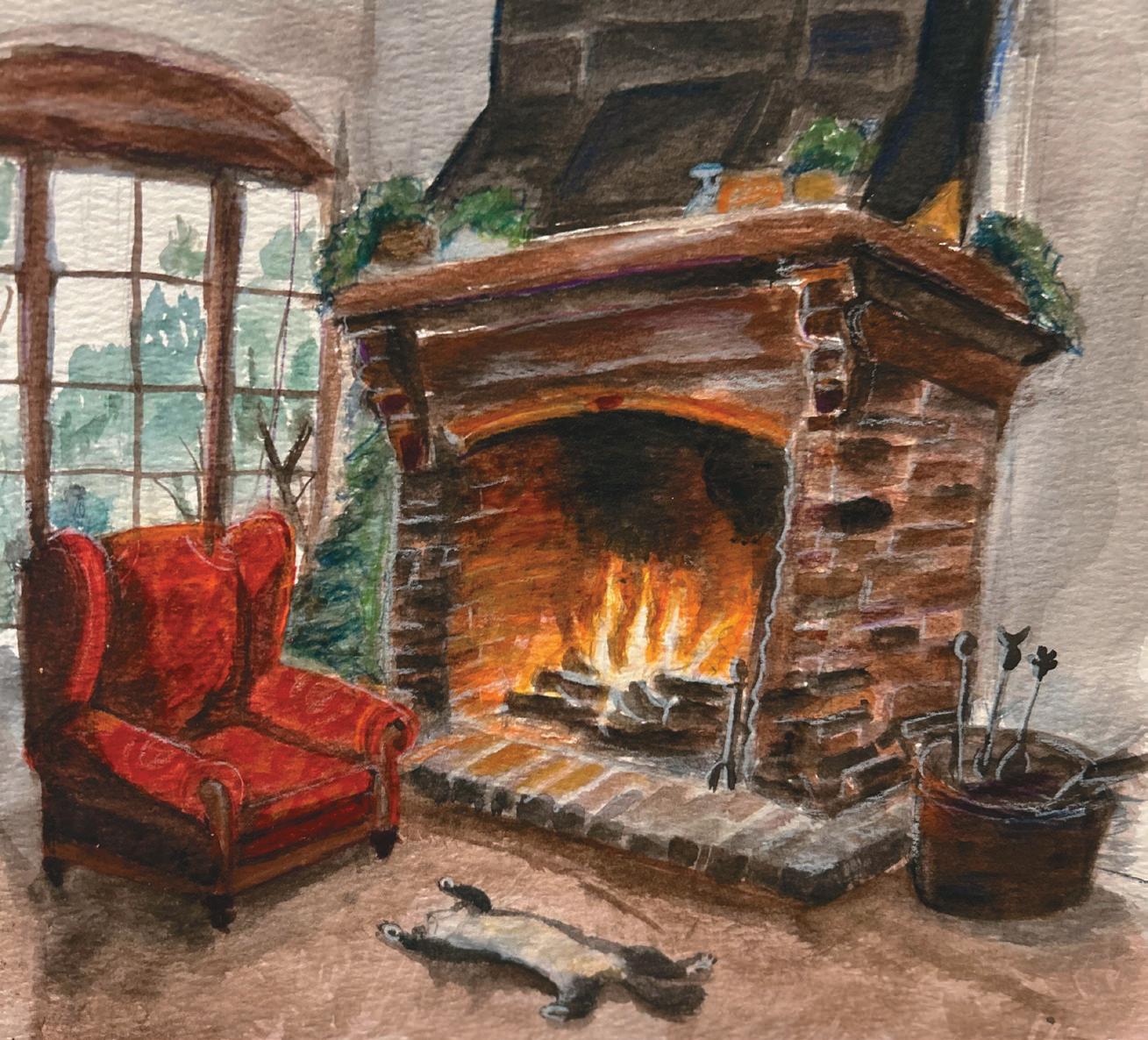
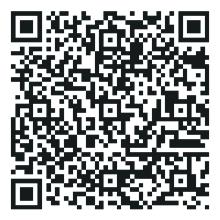
Jonathan Mathews
Student, Long School of Medicine, Class of 2026
I remember well the fire in my great grandfather’s woodstove, Where always he would sit, inside the barn, beside the turnip patch, Which grew the strangest gemstones too with turnips sown Each Spring to bring the great grandchildren out in glee For treasures that they couldn’t see were not, withal, afield, but by the fire.
For all the memories near and far, and all the loved ones come and gone, that I store up for when I sit beside the fire.
Braedon Schlechte
Student, Long School of Medicine, Class of 2026
Come, sit with me beside the hearth of life to share with me the glow and heat that it provides. We’ll watch the tongues of flame that dance and twirl, hear snaps and pops that complement our conversation. Should our view of hearth the smoke obscure, I’ll be content to feel my hand in yours.
Hans Loja Student, Long School of Medicine, Class of 2028
in broken syllables, marbled into verse (like a poet). there are these doors of your multiples: the you roasting chestnuts, the you mimicking a speech therapist, the you studying with a cup of cocoa and the answer’s always the same: i’m fine, don’t worry. say cheese, with small craters in the center. your brother offered to stunt double for your photos - i told him you’re ridiculous, then he did it once and i took it back. his projection of your kinship almost touched the power of your absence.
i was angry a lot; with your parents, because of course their first apology comes when you physiologically cannot refuse it -
with the nearsighted geezer who emasculated you like he thought God would spare him of tearwith terra for growing pumpkins and basil and hydrangeas, while sucking the color from your body. say sugar, because salting the Earth did nothing for me. say football, the last memory before your stroke, and therefore the first to reclaim. we’ll work backwards from there. say sandwich (Reuben). say kiss (left cheek). say argue (i’m fine, don’t worry). say kids.
I don't fully remember what I was taught about Broca's aphasia in college; what I know is the fear of losing language as an avenue into someone's world, and the uncertainty of knowing if anything works. In the likely event someone dear to me becomes incapacitated before I do, I'd like to believe I have the grit to be there for them and not crumble under the responsibility of "loving them right", so perhaps this poem is a self-insert in that way.
"On
Leo Crockett
Student, Long School of Medicine, Class of 2027
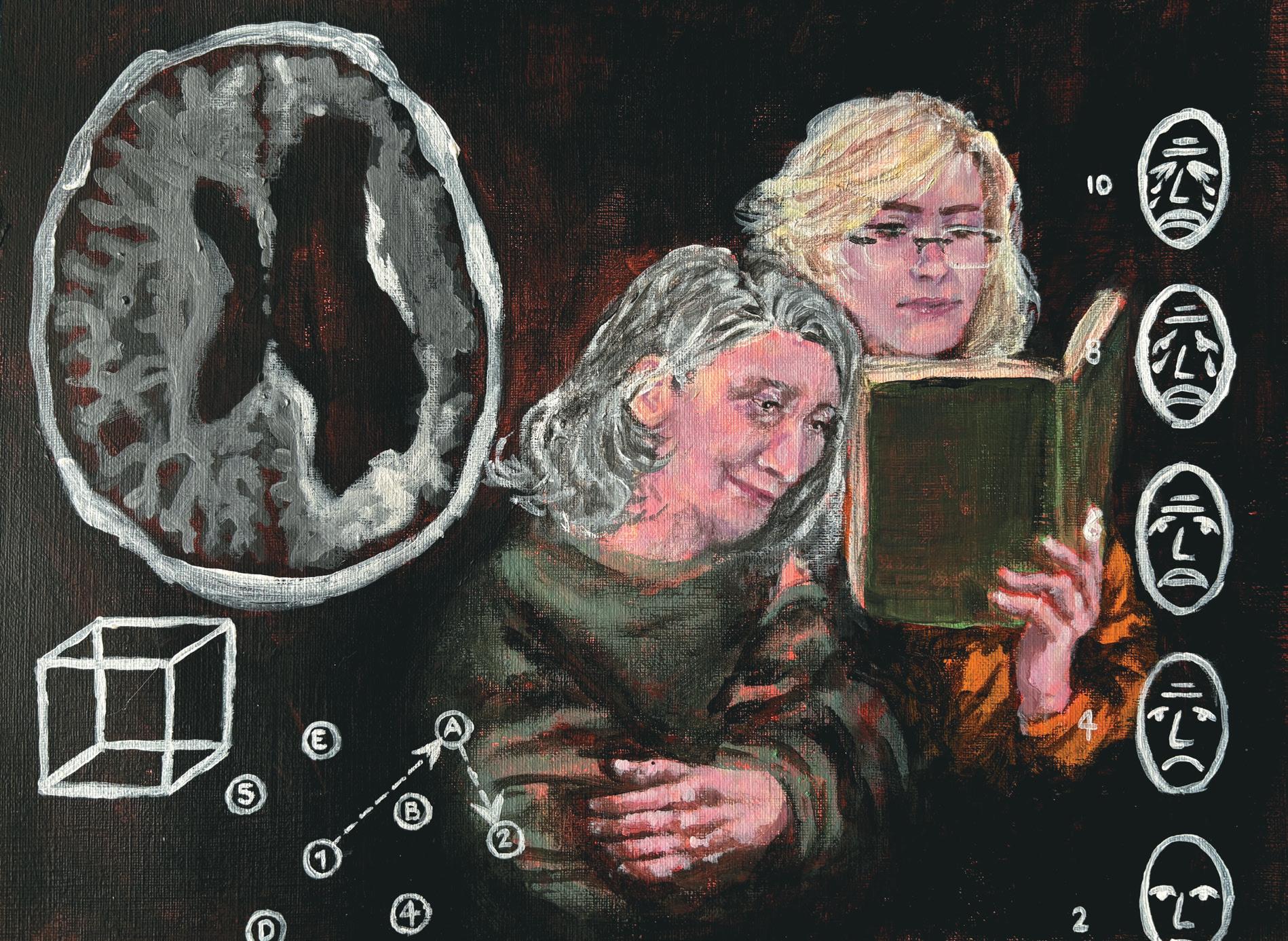
Since her brain cancer diagnosis and subsequent surgery, my mother has had to relearn how to communicate. Though language is still difficult for her, we have found new ways to connect with one another, even if that may be through silence.
Diego Rojano, Malak Husseinali, The Junes
Students, Class of 2028
Lyrics: under a mulberry tree your fate and i will meet tears collect under your wet feet puts your lips on me but promise you wont wish to die if you don't then you just might
you just might if you, you just might do you think its easy?
is there another ending? one that wont tear me apart
Digital Photography
Lillian Agarwal
Student, Long School of Medicine, Class of 2027
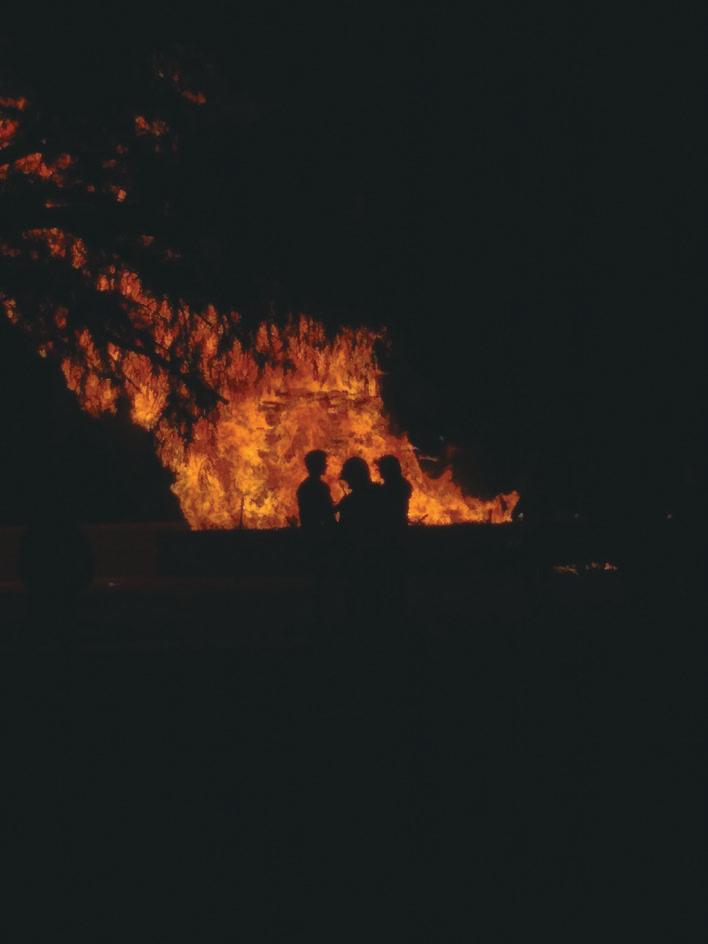
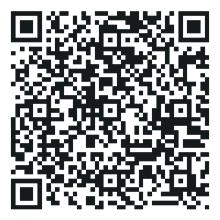
do you think he sees me? is there another meaning if there is where does it start?
Texas Tech University Bonfire; 2022 Homecoming at Urbanovsky Park, Lubbock, Texas.
Braedon Schlechte Student, Long School of Medicine, Class of 2027
I sat on a rock ledge and watched the wind change the world around me. As it buffeted the forested hills below me, I looked to the west and thought about from where the wind came. …
Out west, a hundred miles, or perhaps a thousand, or perhaps neither, the wind began small, quiet, afraid. It was just beginning to learn how to be wind and found itself in a lonely part of the world with endless green plains dotted with trees. Alone, in that lonely part of the world, lived an old woman. She had not always been alone, but she had become so and had learned to recognize loneliness when it blew by her in the shape of the beginnings of a wind. So, she went and greeted it with the calm confidence of someone who has long since grown used to meeting new friends.
“How are you?” she asked.
“I am the wind,” the wind whispered.
“I asked how not who," she said pointedly.
"I am the wind," it repeated, "so I am lonely."
"Does being the wind mean you have to be lonely?” the old woman inquired.
“I do not know, but it’s the only way I’ve ever been,” the wind sighed.
“Well, let’s see if we can't change that.”
They walked, then, through the fields and trees, talking about their lives. They spoke of the woman's lonely cabin and the memories and years that crowded the empty rooms. They spoke of the wind’s beginnings, how it found itself slowly growing in power, brushing branches aside though it once struggled to lift a leaf. Through it all, melancholy permeated the air. No stranger to this either, the old woman asked,
“Do you not want to be the wind?”
“Why would I?” the wind moaned. “All I do is blow one direction to the next, lonely the whole while.”
“The wind does great and wonderful things,” the old woman said. “It causes life to bloom, rain to fall. It is work and trial, yes, but also an honor to be the wind, one of the great turnings of the world.”
Intrigued, the wind asked, “How do I do those things?”
“That is a thing of the wind, and in all my years I have only been human," the woman replied apologetically.
“Maybe I was not meant to be wind, then,” the wind complained. “I can’t make crops grow or rain fall. I can hardly move a branch. I do not know how to be a great turning of the world.”
“You will,” the woman promised.
They walked, then, for a time, and now had known each other long enough to discuss things they had seen together. The way the sun fell through the branches the wind moved. The stream at which a doe drank. The horizon in the distance undulating with forested hills. And the loneliness they had shared was crowded out by these moments, these new experiences they could share. But, as they talked, the wind felt itself growing. Where it once brushed branches, it bent them. And as the wind grew, it found itself blowing faster and faster. The woman kept up, at first. Starting from a slow walk she began to stride more quickly, then, for a bit, kept a light trot. But she was old enough to understand her limits. She knew that there are some things you can’t keep up with no matter how hard you try and that the wind was one of them. So, with a small smile and the calm confidence of someone who has long since grown used to losing old friends, she said to the wind,
“This is where I leave you. Thank you for bringing some life to this lonely part of the world, but it’s time for you to go and do so elsewhere.”
“Please, come with me!” the wind begged, “I do not want to be alone again!”
The old woman smiled, softly. “You will be ok, and you will do all you need to.”
“But I still do not know how!” the wind cried.
“You will,” she promised again.
The wind pushed and strained to stay a moment longer, to see her for one more second, to not leave its friend behind. But it was the wind, and she was an old woman, and before long, the wind was alone again.
…
It was in this period of the wind’s passage that it met me, furious. As it whistled through my hair and screamed in my ear, as it buffeted me and threatened to knock me off balance, as my coat flew out behind me and my eyes watered, even I, who is not yet wise enough to know how to listen for these things, heard its anger echoing off the rock in sharp bursts and cutting snaps. Shapeless and terrible, it raged about being alone and lost, about
not being given clear instructions, about having to try and figure everything out on its own, about the fear of failure, and about missing its friend. In this state, it assaulted the rock ledge I sat on and the countryside I watched. It bent entire trees to its passing and kicked up dust from the rocks. It raced across the water, forming lines of ripples that built into waves that crashed on the shore. It drew clouds together and formed a mighty storm, blotting out the sun and leaving a mark seen from both the heavens and the earth of its pain. It blew over farmland and wildland, river and rock, me and my ledge.
I tried to talk to it then to offer it what little consolation I could. To let it know it was not alone in feeling pain or being lost. To give reassurances, empty as they may have been, that all would be well. But I could not speak to it, or it could not listen, and I watched in sadness as a great turning of the world passed by me in misery.
…
Over east, a thousand miles, or a hundred, or perhaps neither, the wind found itself out of energy. Shrunk down, again, it was little more than a whisper echoing in a lonely part of the world. The land was dry and rough with yellow grass and sparse trees that seemed almost a mockery of the fields where it first began. The leftover dampness of the storm left the wind in quiet weeping. It wept for the trees bent and the dust kicked out of place. It wept for wasted energy, wasted time. It wept for its friend, who had expected so much of it and who did not know of its failure.
Alone in this lonely part of the world lived an old man who had long since learned how to listen for whispers and weeping. With the calm patience of someone who has wept before and expects to weep again, he stepped out to greet the wind.
“What is the matter?” the man asked.
“I am the wind,” the wind spat.
“That does not sound like too bad of a thing to me.”
“What do you know about being the wind?” the wind hissed.
“Well, nothing, but I am grateful for it when it's here,” the man said. “There are worse things to be than something others are grateful for.”
“Grateful?” the wind raged. “I have laid low your forests and stirred dust into your air! I have crashed waves against the shores and brought a storm to these lands! Even now, all I bring is whispers and weeping! You should not be grateful."
"Those seem like things all winds should get up to now and again,” the man replied, "and I am grateful all the same. Is nothing else the matter?”
The wind quieted. It felt itself growing weaker as it traveled, barely brushing branches aside anymore. It wanted someone to understand what it did, if only so it could be properly condemned.
“I left someone. Someone who greeted me when I was alone, and who cared for me. Someone who expected me to bring life to the world and be a great turning,” the wind confessed. “I tried my hardest to stay with her, but I am the wind, and I last saw her in a lonely land in the west. I did not know how to be what she thought I could be. In my anger, I assaulted the world, but even my rage will fade. The trees will straighten, the dust will settle. The world will not remember my passing, good or bad, and I have failed to turn it anew."
The man was silent, for a bit.
“If you'll pardon me,” he said finally, "I have to disagree."
“The dust you kicked up and the water you raged did break down the world, if just a little bit. And while you bent the trees in your fury, they spread pollen in your air. Even as your grief created a storm, you watered the crops. It may not seem like much, but to be a great turning is to help the world on its own path, not remake it entirely.”
The wind was stunned. “But how could I have done this without knowing?”
“Perhaps that is the nature of the wind. Look, even now as you pass you are doing the same, if on a smaller scale.”
The wind saw flower pollen, dust, and small seeds born aloft by its passing, and knew that it was true.
“You have not failed your purpose,” the old man continued, “you are fulfilling it simply by being what you are. Your friend knew of your nature and of your role. She understood what it meant for her when she greeted you. I know she wants you to be happy, to be a wind, not feel guilty for leaving her.”
“You cannot know that,” the wind pointed out.
“Perhaps you’re right," the man admitted, "but I hope.”
The wind took comfort in his words but still did not feel resolved. It was weaker now, barely able to stir leaves into the air. It wished it could see its friend one last time to give her company and let her know of what it had done, but it knew its time as the wind was ending.
“Would you visit her for me?” it asked, hesitantly.
“Sure,” the old man promised.
Contented, the wind continued with the man in silence until they reached a clearing where the air was still. The wind sighed, and breathed, and died there, then, having turned the world anew.
A lonely woman in a lonely house in a lonely part of the world was surprised for the first time since she could remember by a knock on her door. An old man stood outside, road-weary and smiling. She recognized his loneliness and felt with him the kinship of one who knows what it means to be the last of something. He could hear the quiet grief she had long since stopped voicing and felt with her the kinship of one who has known as many tears as sunrises.
And when the man spoke, in his breath was a bit of the wind.
Digital Photography
Maribel Salgado, BSN, RN
Graduate Student/Post-Graduate Student, School of Nursing, Class of 2028
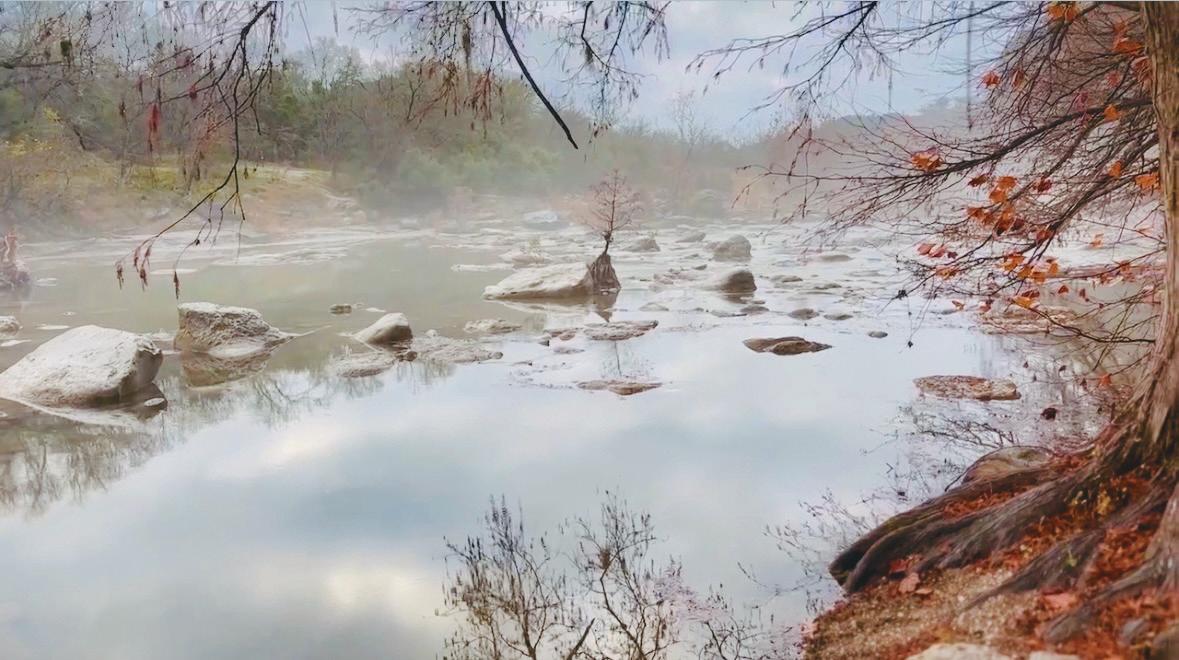
"The Post-Surgical Spine: A Hearth of Renewed Strength and Stability"
Watercolor and colored pencil on paper
Sammar Ghannam, MD, MPH
Resident/Fellow, Radiology, Class of 2026
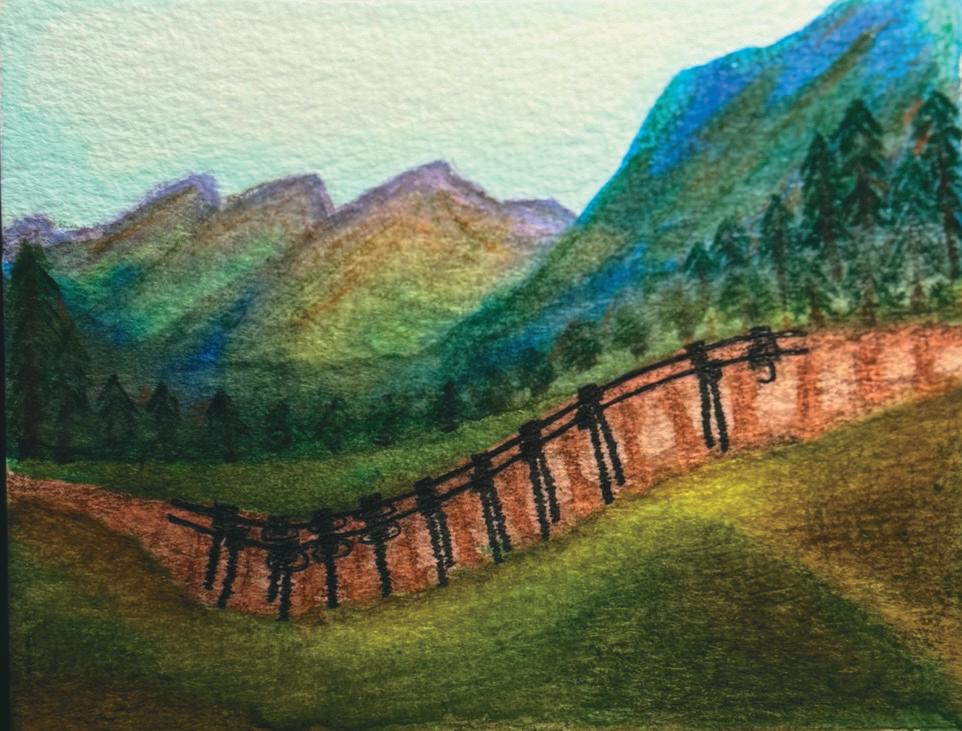
The spine is the central foundation of the body. After surgical intervention/repair, the spine becomes a source of newfound strength and stability, allowing patients to rebuild their lives.
Digital Photography
Rory Williams
Student, Long School of Medicine, Class of 2027
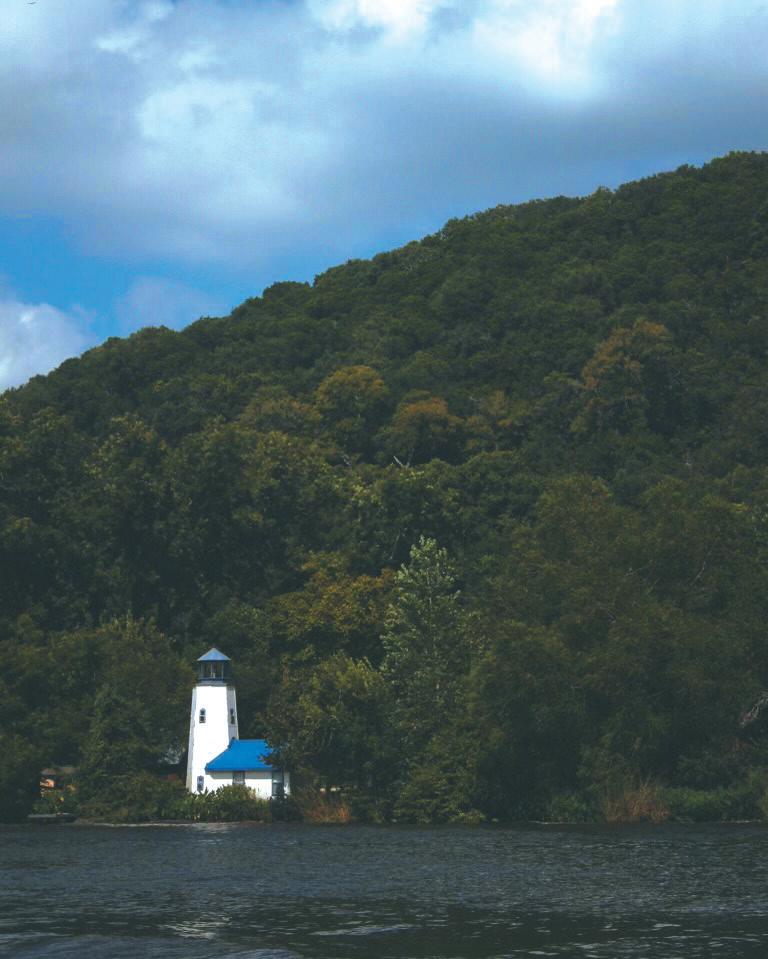
Lauren Lia Quesada Student, Long School of Medicine, Class of 2025
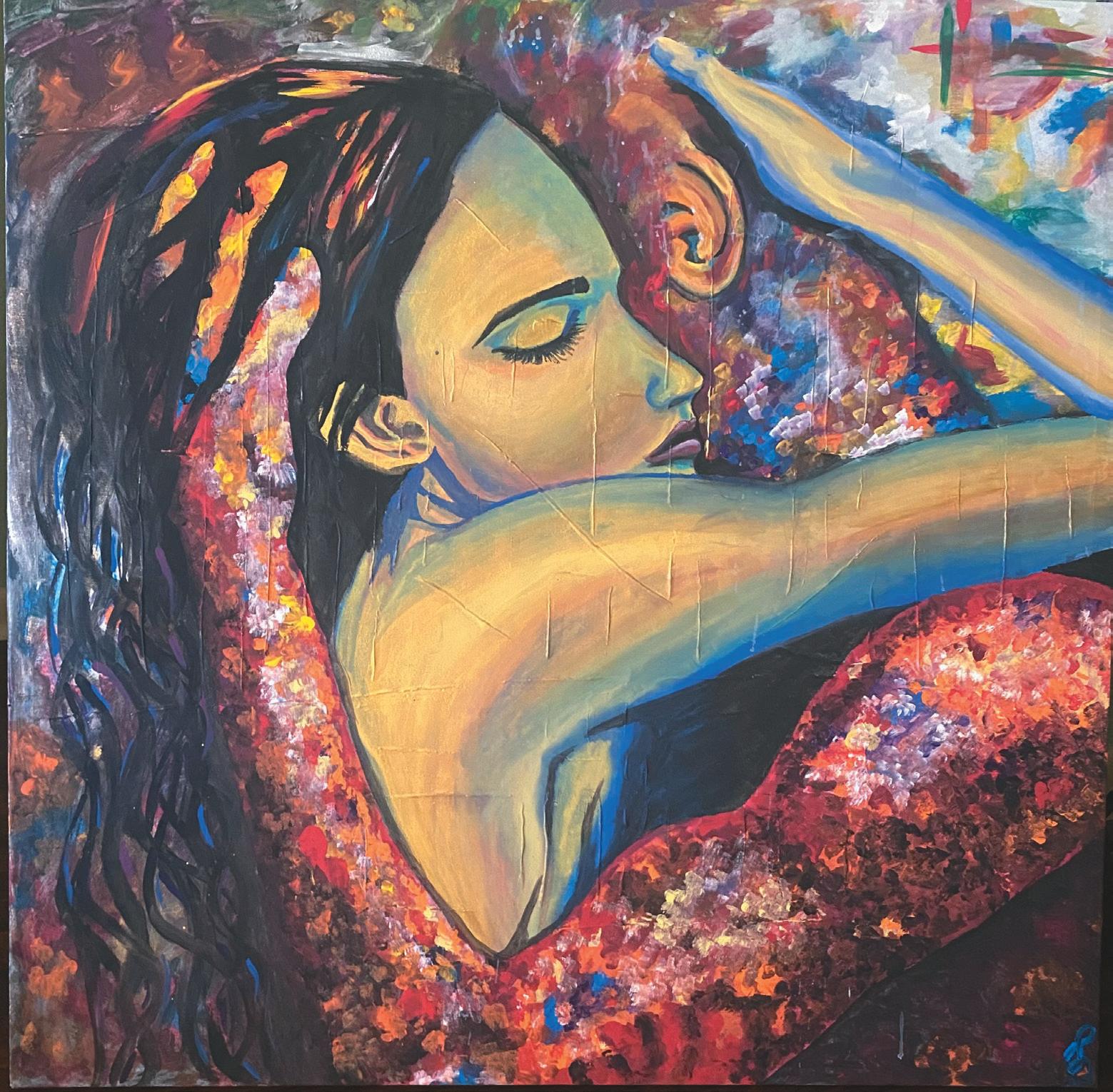
Tony Jha and Maria Smereka-Hladio Students, Long School of Medicine, Class of 2027
(Duane)
Stood by
A moment passed you took my heart by surprise And I can’t seem to let you go
In my eyes, you and I were always meant to be (Why’d you leave?)
Sending
Letters burning bridges happy endings
Caught a flame and left our story empty
But through it all I’m searching still for you (Are you too?)
I can’t forget, The way that we danced While the sun starts to set Time just felt frozen
And all I regret Is how could life keep us so apart?
But I always kept you close to my heart.
(Peggy)
You know that I waited for you, Fell apart, Letters unanswered, I found a new heart.
Then I moved across the ocean far away, from what I called home on a cloudy day, The raindrops washed my tears away.
Now I’m
Sitting by the fire as it burns out, Wondering what would have been.
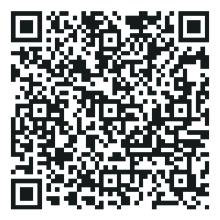
This song was inspired by the story of Duane Mann, a Korean war veteran who reunited with his long-lost first love, Peggy, after 70 years apart. Read more about them here: https://www.rova.nz/articles/warveteran-reunites-with-his-long-lost-first-love-after-70-years
Would she have had your eyes? Your smile? And now, my son carries your name.
I can’t forget, The way that we danced While the sun starts to set Time just felt frozen
And all I regret Is how could life keep us so apart? But I always kept you close to my heart.
(Instrumental)
But I have to forget, The way that we danced ‘Cause our sun finally set With the paths that we’ve chosen.
I’m counting my breaths Wishing I had spent them all with you
But I will always keep you close to my heart.
Digital Photography
Damian Crow
Student, Long School of Medicine, Class of 2025
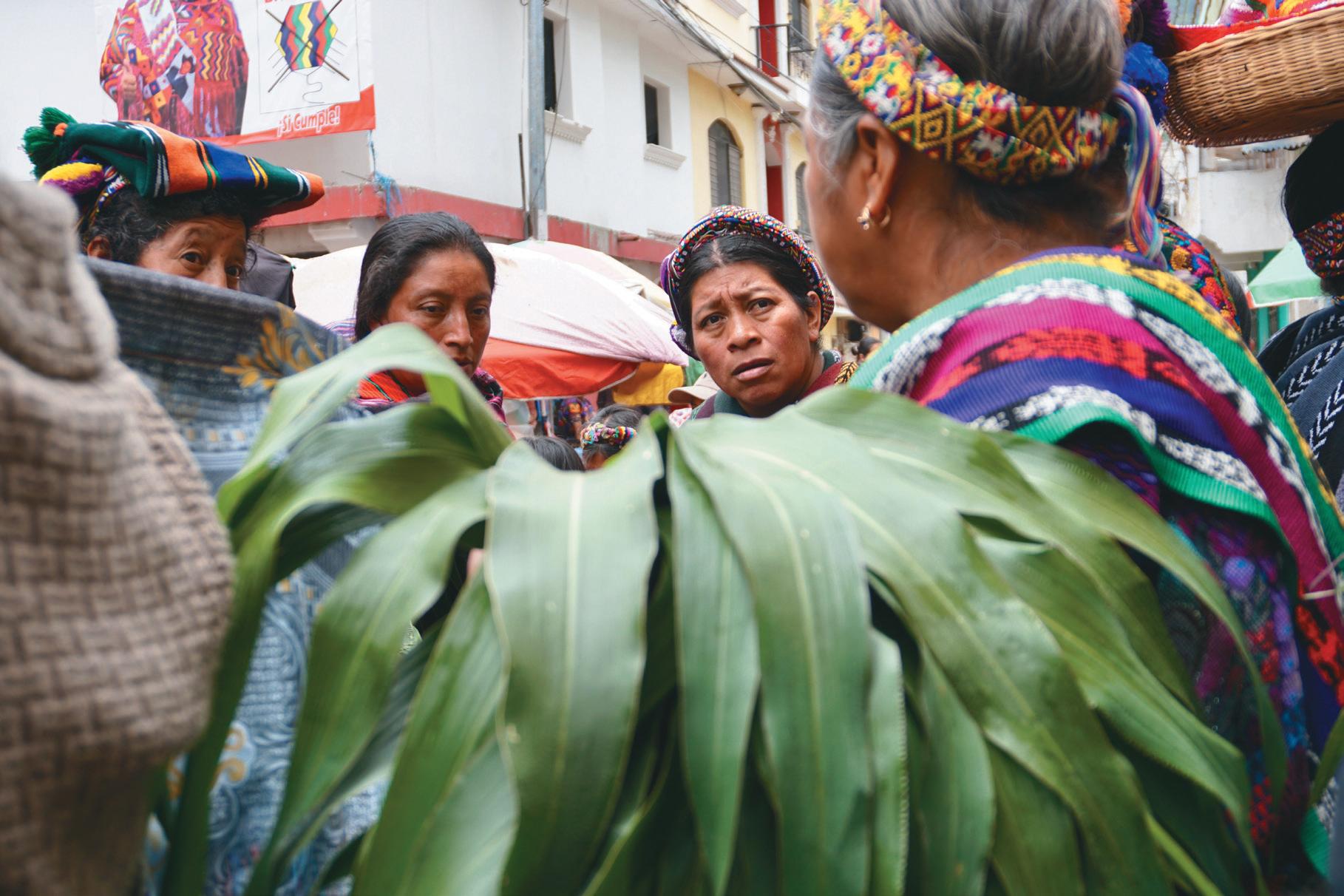
Woven garments and the rustle of palm leaves bring life to the Guatemalan marketplace, a hearth where goods, traditions, and stories are exchanged. Brightly dressed and deeply expressive, these women embody the enduring rhythms of community and connection.
Maria Fernandez Falcon MD, FAAP
Faculty
Dear mom, Finally, out here.
I know you more than you think. I heard your voice for months.
I see you in colors, I want to bond.
I feel your heartbeat, I welcome your hugs.
I cry all day, and I don't sleep at night.
I will smile to you soon.
I love you too.
As a pediatrician at UT Health San Antonio, I have the privilege to teach families about our need of connection and bonds even before birth. It is priceless to give parents the power of education about early relations, embracing and strengthening their love from their children.
Lacy Lichtenhan
Student, Long School of Medicine, Class of 2027
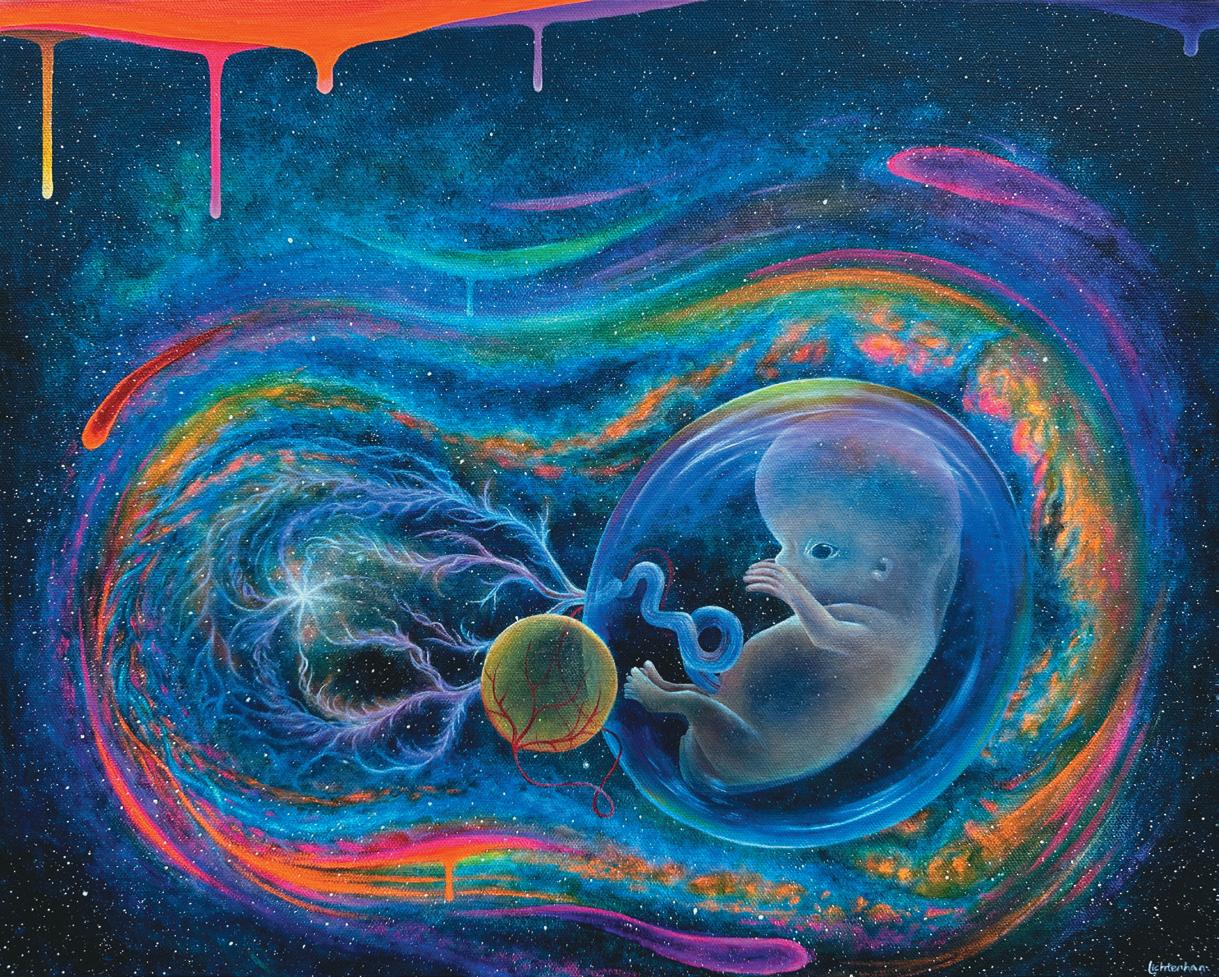
"Joy"
Graphite on paper
Anukriti Singh
Student, Long School of Medicine, Class of 2026
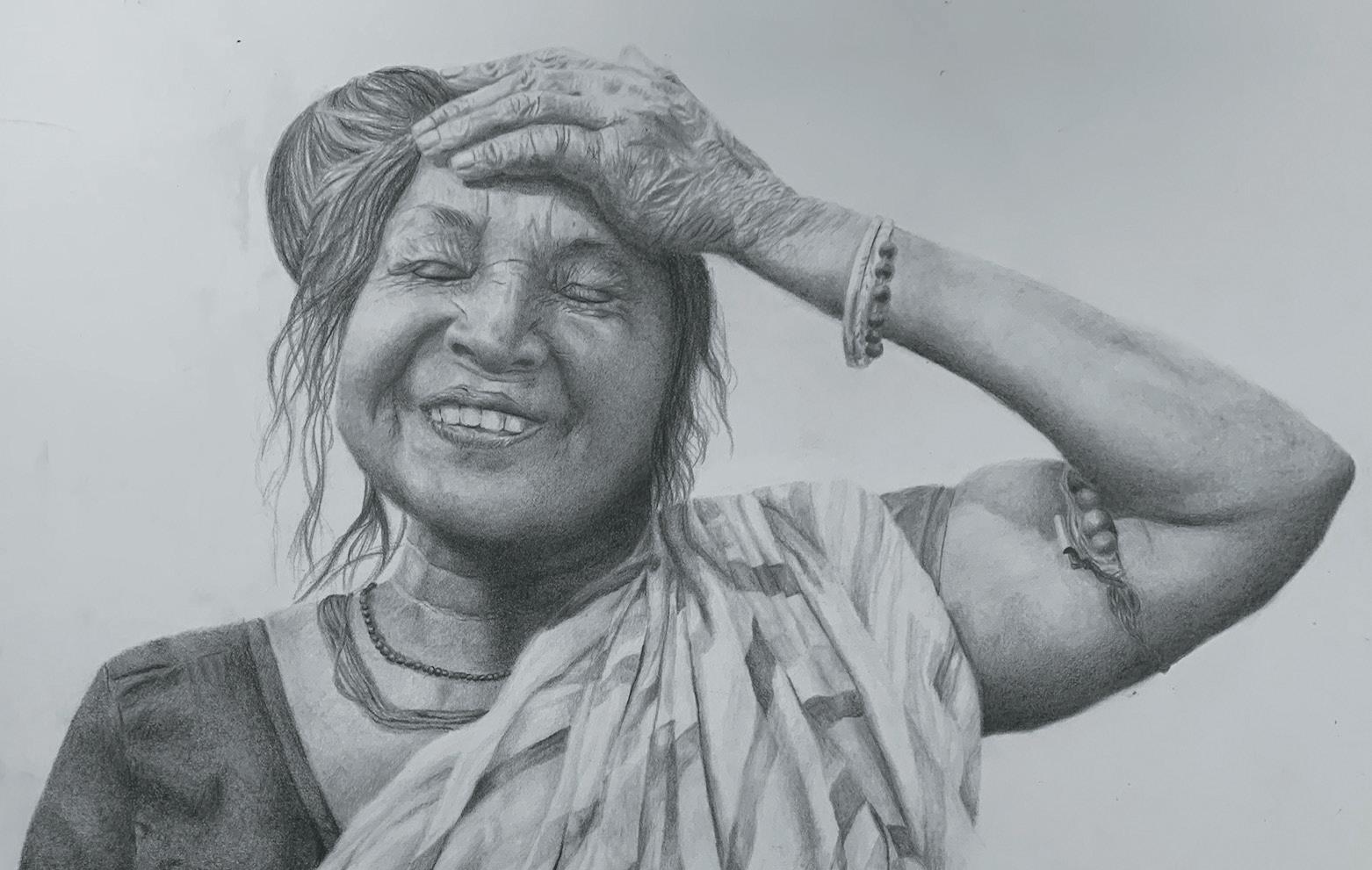
This image shows my grandmother and her beautiful smile which has always inspired me. Her presence symbolizes the passing of stories and values from my culture, similar to how in clinical practice there are shared narratives that bring warmth and connection.
Kawika Dipko Student, Long School of Medicine, Class of 2026
What colors the image of an unconquerable spirit?
Burnished bronze that glows with hero’s luster, Or the sun-deepened tan of wrinkled, work-worn skin?
Does deep sea blue best paint eyes with stalwart will, Or tired, muddy brown with a hint of pale, jaundice yellow?
Does rich brunette or brilliant blonde best adorn the victor’s head, Or perhaps silvery gray entangled in black?
Should the shoulders be square, ready to face any challenge that comes?
Or might they be stooped, patiently enduring burdens they have long been made to bear?
Should there be a cape of flowing violet and shoes glistening black?
Or better a simple purple top and dusty gray slippers?
Should not the manifestation of perseverance and determination exude strength and courage? Strength, yes, and courage assuredly.
But their portrayal is not perceived in piercing iris or wealth’s wardrobe. They are witnessed in the quiet nightly ritual of blood cleansing, In the precious son, who calls abuela “mom”
In the quiet humor that chooses to smile instead of despair.
A reflection of a patient that I met during the Family Medicine clerkship whose warm, welcoming demeanor belied her need for nightly dialysis, the physical disabilities of family members she cared for, and the strained financial situation they all lived in. An example of positivity despite hardship and uncommon will to endure.
Andrew Ta
Student, Long School of Medicine, Class of 2026
Thousands of years ago during the Han Dynasty, a doctor wraps lamb and medicinal herbs in scraps of dough. He boils them in soup and heads to the streets, handing them out to the cold impoverished.
Hundreds of years later, a mom cares for her sick son, pressing and folding each ridge by hand, an errand of love and an assembly line of meat and dough.
Twenty years ago, you place your hands over mine, and you show me: Mix well, wet edges, fold slowly, while sharing stories from generations past.
But today, I make dumplings alone, with misty eyes and a heavy heart. That is the challenge with traditions: now that you’re gone, they still carry your memory.
For traditions shared and passed down through food, from Zhang Zhongjing’s first dumplings in Han China to my grandmother in Fort Worth, Texas.
Gauche and colored pencil
Catherine Xie
Student, Long School of Medicine, Class of 2026
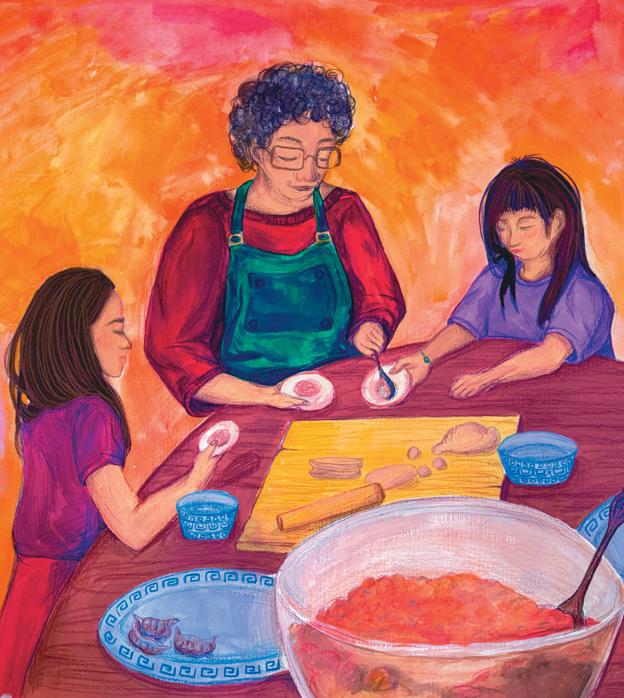
Growing up, our family's hearth wasn’t a fireplace — it was a big bowl of dumpling filling. Generations of knowledge were folded into every pleat, encasing warmth and tradition in each dumpling.
"A
Digital Photography
Jacob Luddington
Student, Long School of Medicine, Class of 2026
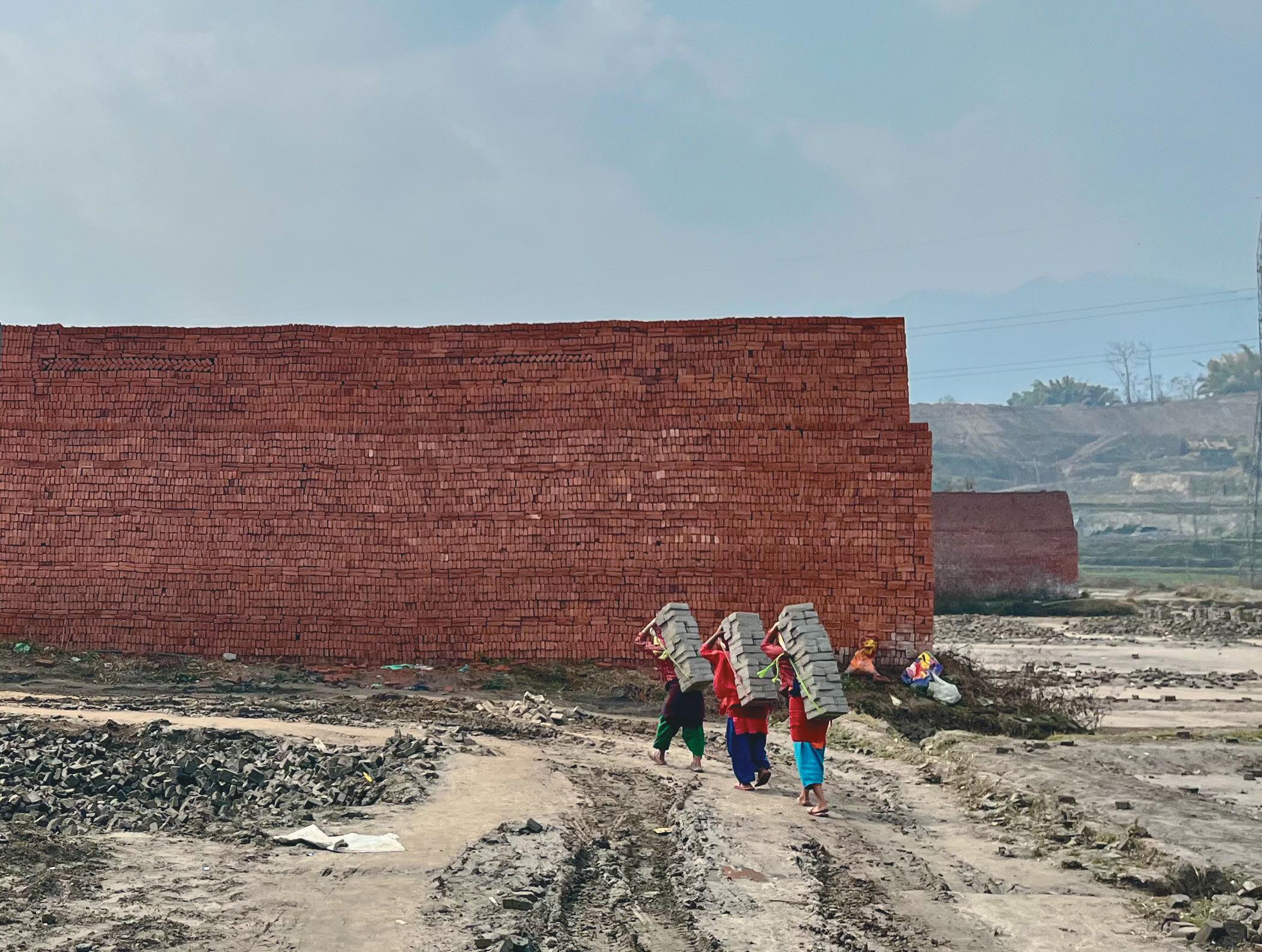
Matthew D. Myers
Student, Long School of Medicine, Class of 2027
In 24 hours, I witnessed a hundred different worlds.
A young boy, naked, dirty, malnourished, mistreated, misunderstood, alone.
A rich man, praised, envied, lavishly spending to celebrate himself.
A strong woman, survivor, fighter, courageous, leading a community.
A young man, culturally trapped, stagnant, unsure of his future.
A medical student, confident, caring, excited to lend a hand.
A house bigger than I’ve ever seen, empty.
A small hut of clay and brick, overflowing.
A fleet of black range rovers for just one man.
A herd of people walking miles just for work.
A couple of old trucks for doctors.
A man who trusts me because I am American.
A man who doesn’t trust me because I am American.
In this country, I am a visitor, and I am acutely aware of the different worlds all around me.
I wonder now, how many worlds are in my own country?
Emma Tao Student, Long School of Medicine, Class of 2028
Aristophanes described the descent of man as a tumble. We plummeted from greatness, like Icarus in waxy hubris. Of the suns split two men, of earth man and woman, and of the moons two women. A miserable, lifelong search for our missing half commences.
We spring forth from mothers and fathers, we seek out companionship, we build families of our own. Lifeblood courses through each tie; just two halves make a whole but I have found an abundance of completion.
I am born of my mother and her tides have pulled me into adulthood. There is a girl I know who smells of liquid fire and conversation late into a reflective night. The hands of a matriarch are worn and I grasp them tightly for a fleeting glimpse into the future.
Explicating human connection in nature debases it, reducing us to effectors of a biological impetus. Aristophanes makes it not so.
Punished by Zeus, our split so great a wound, not even another god could endure witness. Gifted by Apollo, lifetimes stand to reconcile pain. We tell this story, breathing in the same gasp of air expunged from the lungs of heavenly exiles.
On the nature of man: to relieve us of solitary suffering we have the opportunity to find those who allow us to meld back into our celestial forebears.
Moons ago, I knew you.
It's important to know where we came from.
"Strength
Clay pottery
Anh Truong Student, School of Nursing, Class of 2025
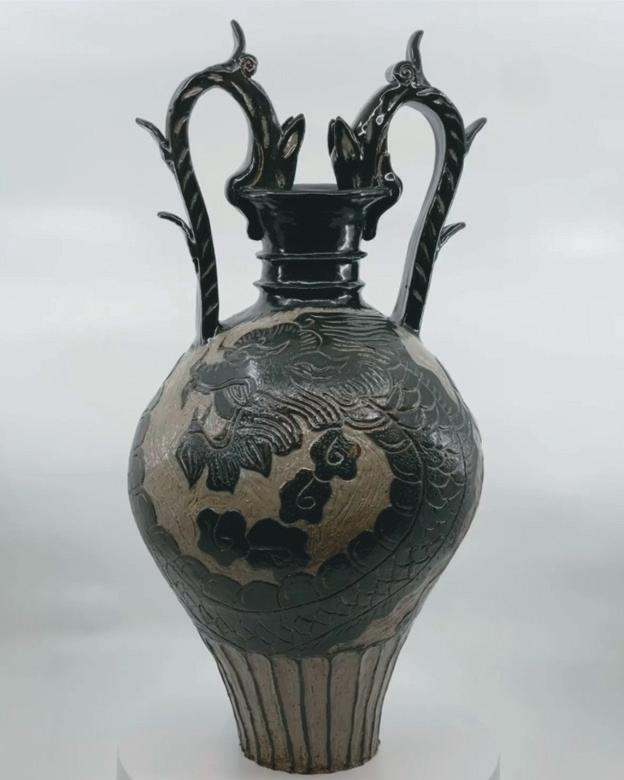
This dragon vase symbolizes resilience, wisdom, and protection — values rooted in Asian heritage and essential to healthcare.
Andrew Ta
Student, Long School of Medicine, Class of 2026
In the summer of 2005, my grandfather teaches me chess. He called this opening the Sicilian Defense: Black sacrifices their first pawn to control the center of the board. To gain something, you give something up. Nineteen years later, I play the same moves against you in an inpatient psychiatry ward. PTSD, danger to himself and others, your chart reads, in stark contrast to the cordial man across from me pondering his next move. You describe your unfinished novel to me. The Forgotten Heroes, you called it, written for the veterans of the Vietnam War. I wonder if you also played chess with my grandfather in Saigon – two young men from different cultures drafted to give their healthiest years for a lifetime of nightmares and memories. for lives of service walls empty, sheets bare, joy gone but not forgotten
Phuongthy T. Tran
Student, Long School of Medicine, Class of 2027
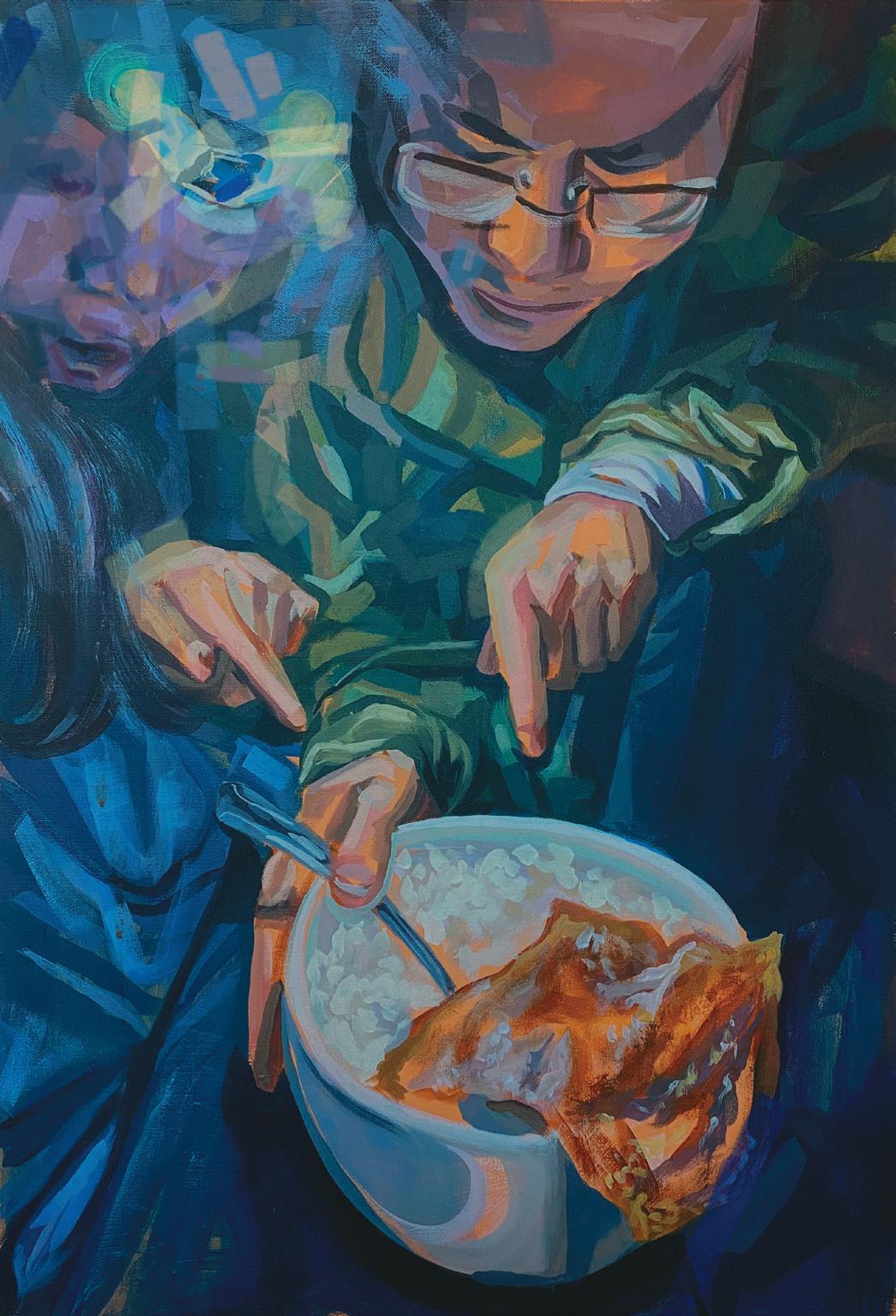
Dara Love
Student, Long School of Medicine, Class of 2028
I’m sorry. I’m sorry I put pieces of your adipose tissue in that bucket. I try earnestly to keep as much of you together as I can.
When I see you, I think of my little sister.
You remind me of that third week of school, the week where she was closer to you than she was to me. The week when, like the time we spend together, she lay unaware and consenting before a stranger as they cut away pieces of permanently dead flesh.
When I witnessed my little sister lose her leg, I thought of you. I thought of her leg at the bottom of that communal bucket touching innumerable pieces of nearly unidentifiable tissue. I hate the thought of her leg touching so many others, and I hate the thought of you touching so many others too.
I want to keep you together. I’ve never met your family, but I’d guess that they’d want every piece of you back, just like I need every bit of her.
Yet, I can’t compare these circumstances. She breathes. At 19, the grief over the loss of her leg feels sharp in the incompleteness of her life, the future that can’t happen, but she breathes. At 96, it’s a different kind of grief for you; it’s grief for the rich fullness only developed over almost a century. It’s grief for completeness.
It’s grief for your memories, coded somewhere in your mind and the freckles on your arms, yet entirely inaccessible now. It’s grief for the habits behind your well-kept fingernails. It’s grief for your last breath slowly crackling out of stubborn alveoli as I hold your lung in my hand, you and I separated only by my thin blue glove. How many cool misted mornings, scorching summer afternoons, fueled your existence through this very tissue?
You smoked. I don’t, but I tasted a vape for the first and only time last weekend thinking of you. Thinking of how I want to hear about your first cigarette, the people you smoked it with. What you thought about as you tasted it.
I held your cause of death in my bare fingers and lived. It’s not that I’m trying to imitate you. I want to understand you.
In a sense, this is the ultimate trust. You trust me more than anyone else ever will. You trust me, a student starting from nothing. Without presenting your name, you present the single most irreplaceable possession of your life — the vessel of your life — not to your family, but to me.
But what did you trust me with, exactly? Tools for learning, the anatomy of your body? A comprehensive understanding of your symptoms in life? Some vague desire to do something “for science?” Your memory?
More personal still, I ask you:
If you met me, knowing that I would be the one to learn from you, would you still make the same decision? If I met you, would I? If you could meet me after all of this and see what I’ve done, would you be happy with the decision you made?
It was hard working with you after the accident. You know this. I see her lying on the table, pale in the formaldehyde. Then, I see you. I see my decision to leave her care to my family, my decision to care for you instead. You see the moments where I count the years until they can count on me — oldest daughter, sister, cousin — to be there for them in some distant future. You alone see the moments I steal to steel my heart, smile, and ask who wants to start. Yet, through the flashbacks, you made me better. You comforted me. You made me feel purposeful. You gave my decision to stay meaning.
In a life spent learning from strong women, it’s fitting that you teach me this quiet truth: my life isn’t mine anymore. It stopped being mine the moment I entered this room, when I began learning from you. Your donation makes that clear. It’s not my
future I’m building anymore — it’s something larger. Your donation belongs to the people I’ll care for, the ones whose lives I’ll touch with what I’ve learned from you.
I chose not to stay with my sister after her accident, to leave her care to my family. And I can’t say it was the right choice yet, but in staying with you, I’ve discovered a kind of peace I didn’t expect. It’s not an easy peace — it’s conflicted, raw, tangled with grief and love. My life is now for the people I’ll treat, for the knowledge I’ll carry forward. It’s their lives, or maybe it’s yours, through me.
I’ll carry that responsibility, quietly, with dignity and respect through this life that isn’t my own. I promise you that.
This piece outlines an internal conversation between myself and the donor who taught me in my first semester of medical. Most of the conversation occurred after an accident in the second week of school that resulted in the loss of my youngest sister's leg.
Charcoal on paper
Theodore Margo
Student, Long School of Medicine, Class of 2025
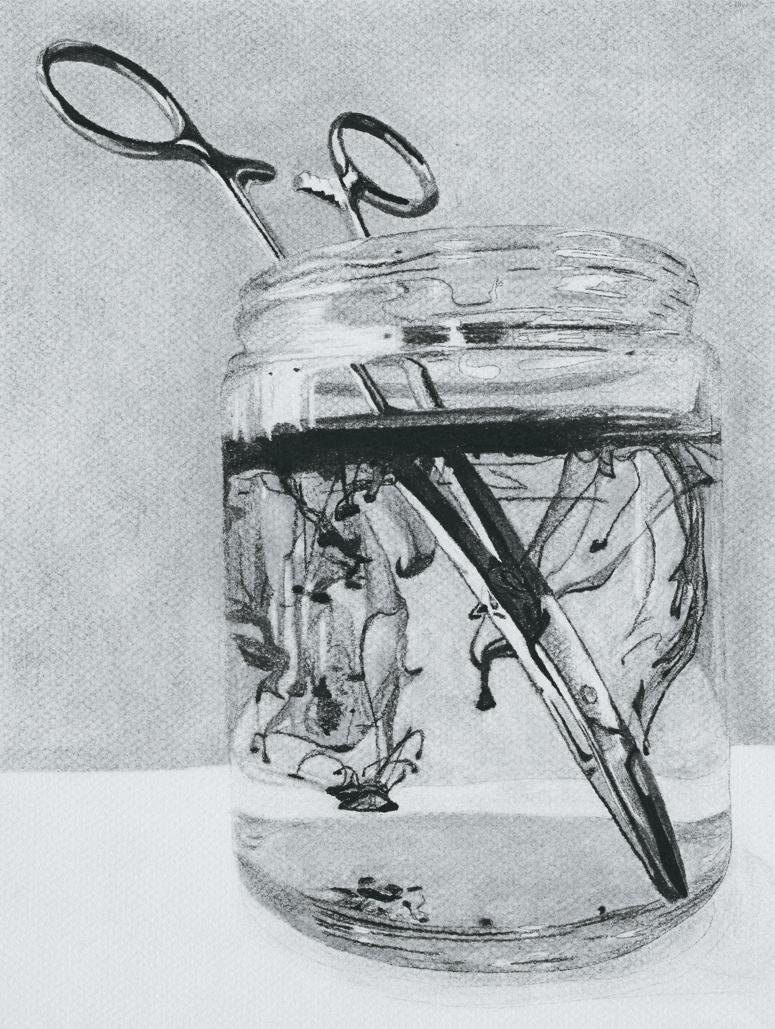
Charcoal on paper
Theodore Margo
Student, Long School of Medicine, Class of 2025
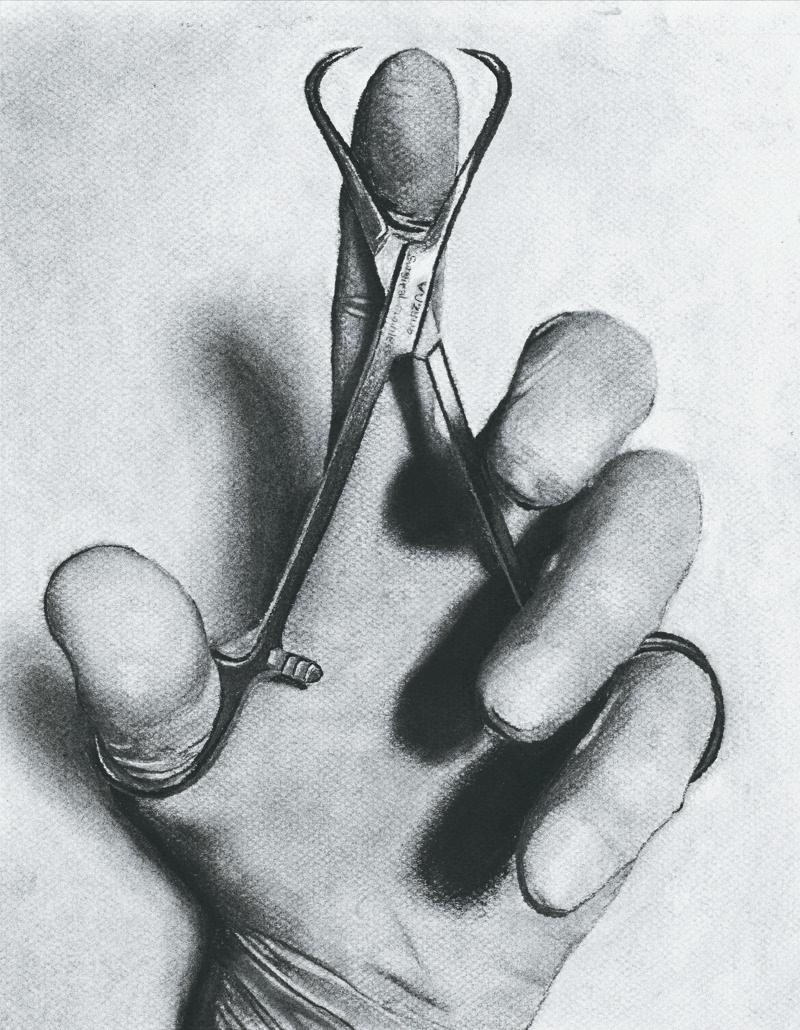
I never understood how people could draw glass without a photo reference. This was an exercise in capturing the refraction of light through glass and water, and to explore how it affected the appearance of surgical steel. The ink suspended in water always reminds me to stop and appreciate the moment.
I made this piece for fun, just to see if I could draw my own hand effectively. When it was complete, I always felt a sense of suspense looking at it, as if I was waiting for a house of cards to topple over.
Lauren Lia Quesada
Student, Long School of Medicine, Class of 2025
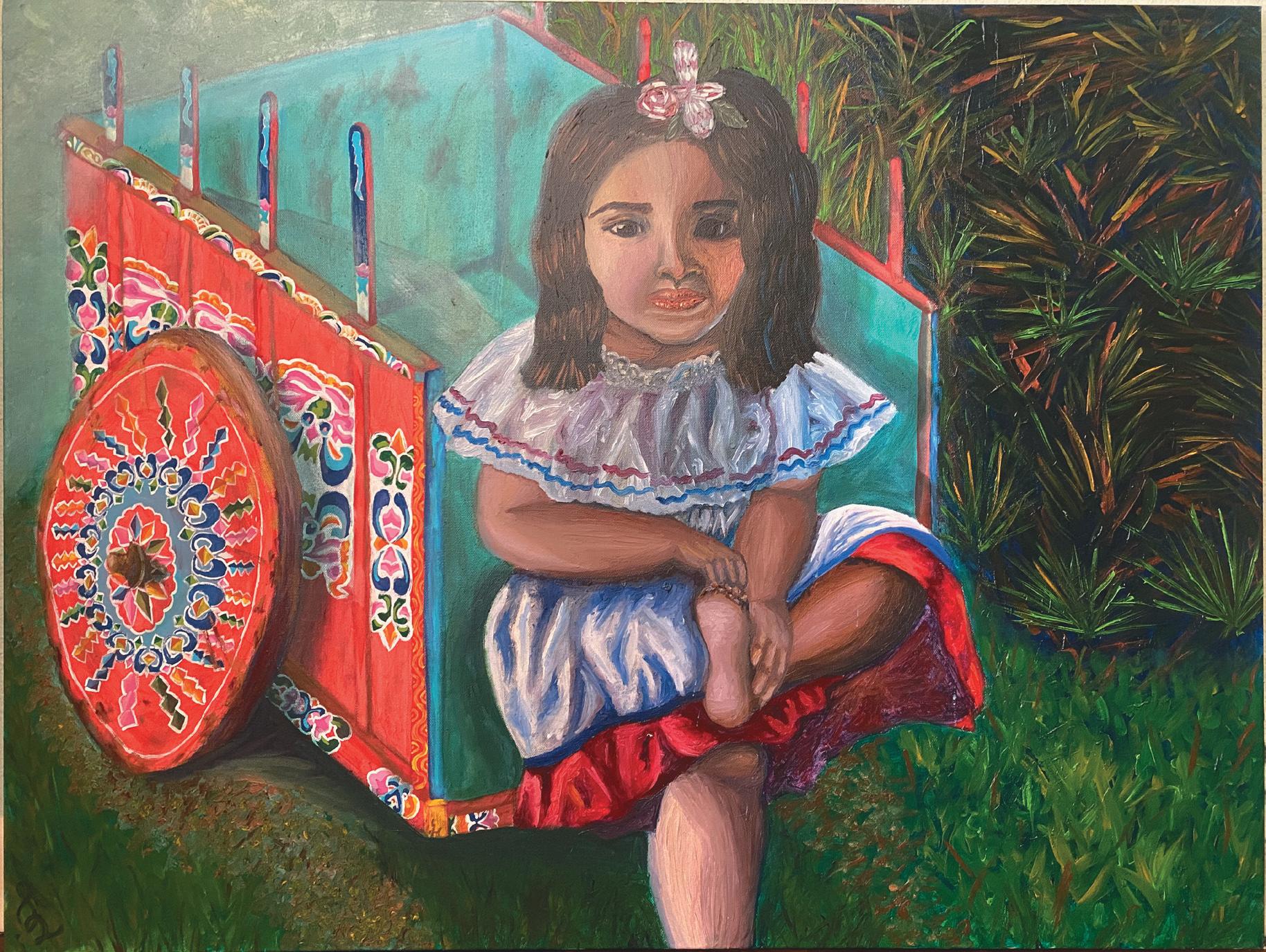
"La Nigüenta" is a Costa Rican folk icon. Traditionally, she is a small porcelain figure of a naked girl picking out hookworms from her toes, supposed to bring good luck. This one is of my niece in traditional garb on a traditional painted careta (ox cart).
Colored pencils on paper
Daming Lin
Student, Long School of Medicine, Class of 2028
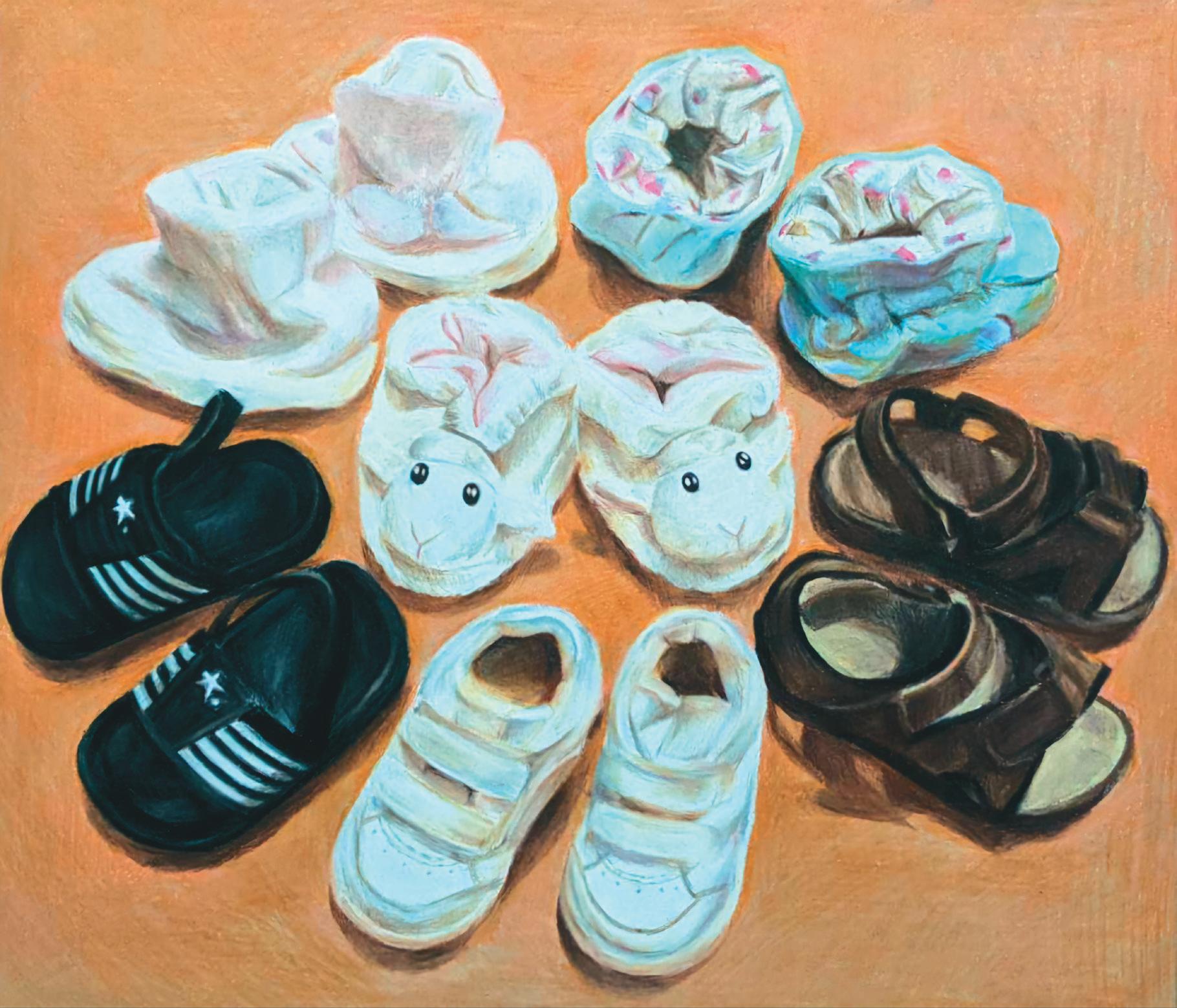
Student/Post-Graduate
Student
A drumstick cone has three parts: The crunchy, nutty top, The creamy, ice cream middle, And the chocolate-filled end – the best part. Naturally, I gave that part to my mother.
On a summer night on the balcony, I handed it to her while we talked. She took it, her voice soft as she told me about her childhood home.
On a hot afternoon, I handed it to her while she filled out school enrollment forms. She took it, mindlessly, murmuring that kids grow up too fast.
When the weight of her diagnosis lingered in the air, we ate our ice cream in silence, numb to everything but the sweet, cold melt. I handed it to her, and leaned my head on her shoulder. She took it, and rested her head against mine.
Now, I reach the end of my drumstick while reading, and I hold it out for her to take. But it stays there –my favorite part of the drumstick. All for me.
I wondered, how does the brain store the memory of a sweet treat with one who is no longer there to taste it?
Digital Photography
Jose E. Cavazos, MD, PhD
Faculty
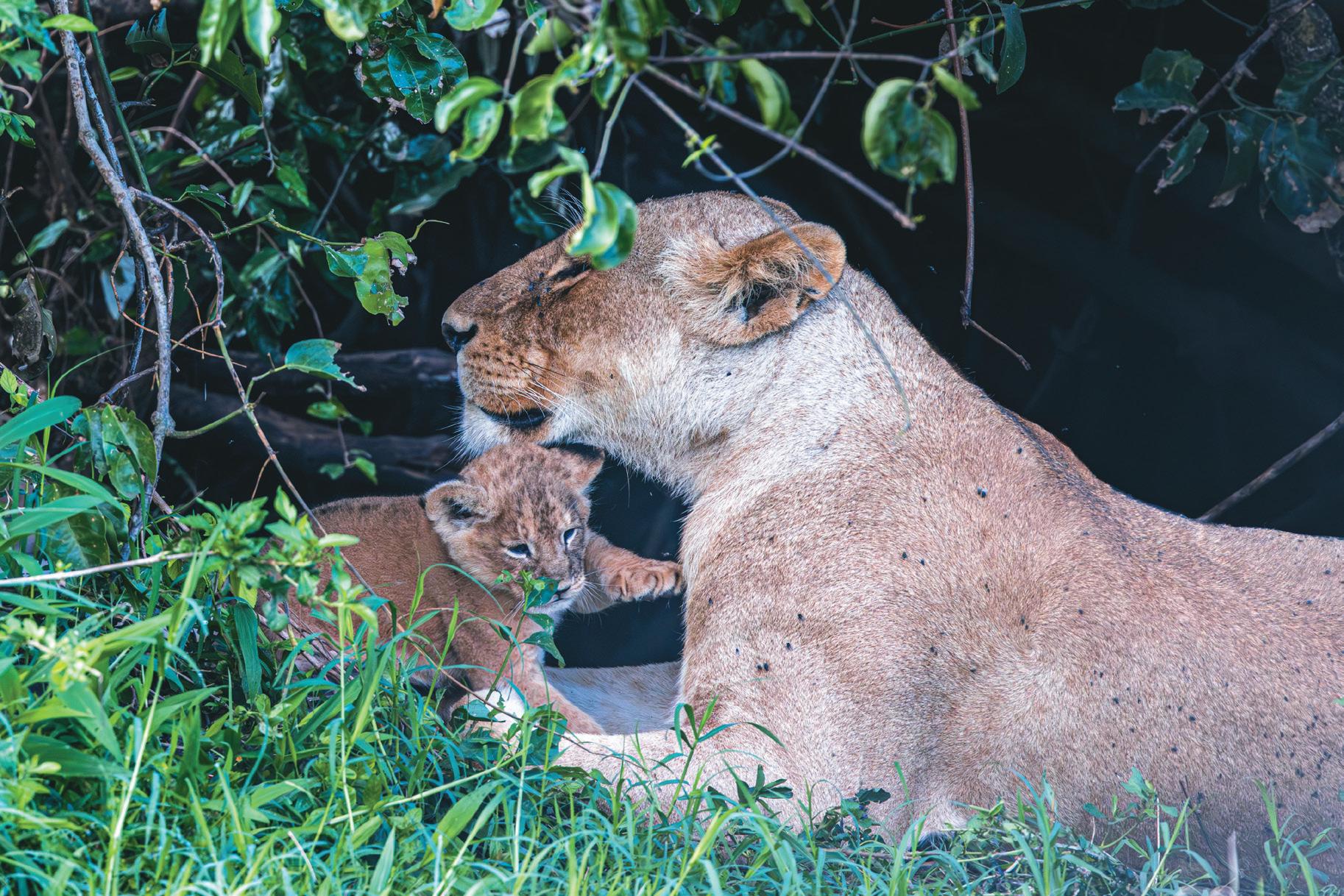
This is a month-old lion cub playing securely under the watch of her mother. It was taken at Masai Mara National Park in Kenya on December 10, 2024.
Digital Photography
Sammy Russell
Student, Long School of Medicine, Class of 2025
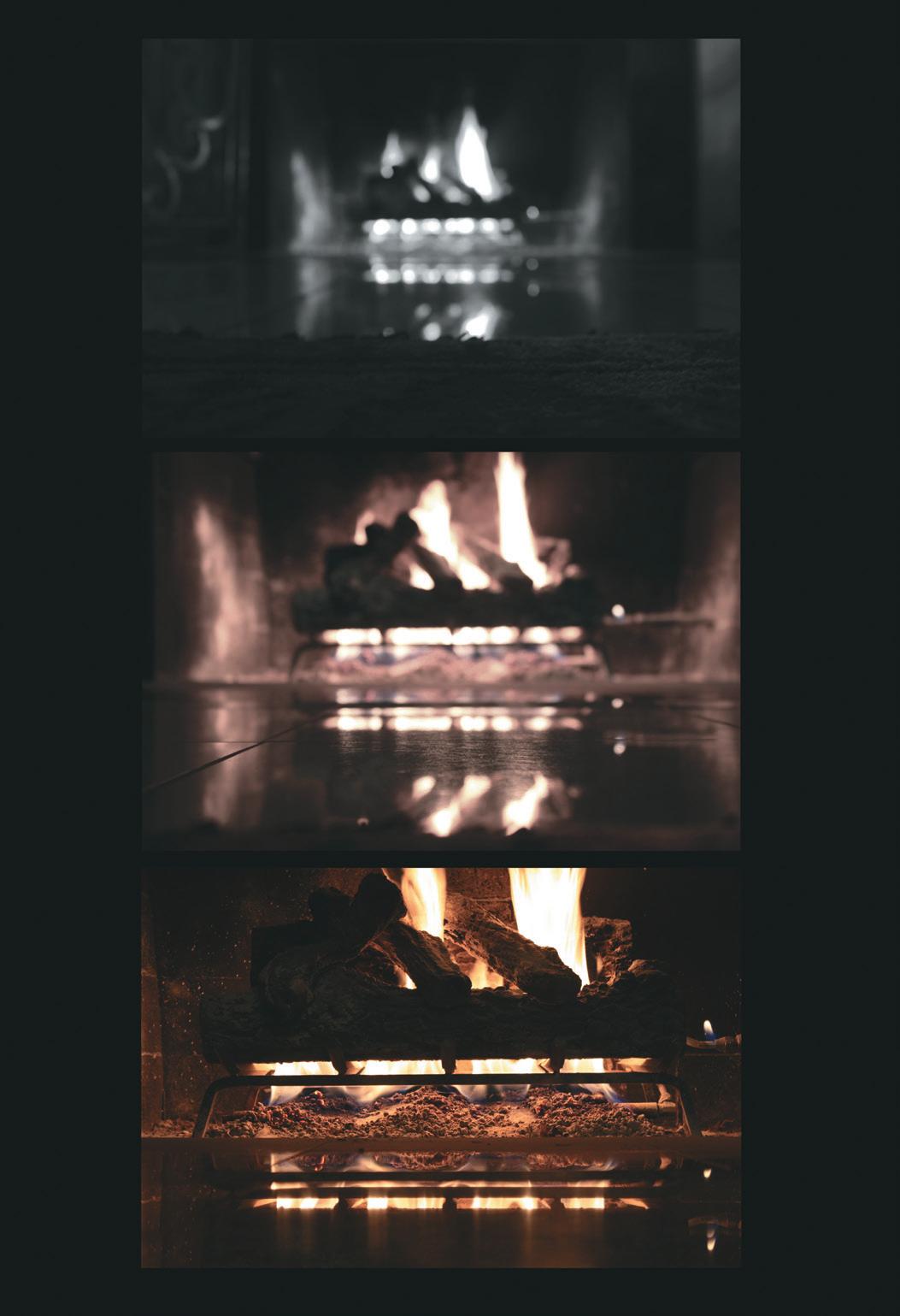
Hans Loja Student, Long School of Medicine, Class of 2028
rain like glass pellet guerrilla beating down from false heaven. winds so severe our umbrellas have emancipated themselves into the storm. in this no man’s land a reaper named cold hemagglutinin is threatening to cut the oldest deal of all - the umbilical cord. to Gaea we might’ve never existed and in our pre-alveolar ignorance, pain is just abyssal apocrypha. so refreshing. i could go for an iced glass of my plasma on Long Island. have you ever met a hailstone who apologized for a concussion? a Naegleria who pitied your birth in the transitional flood, knocked on your cribriform before entering? even the sun casts a shadow.
there’s just one thing, however; when i kid, you laugh, and something awakens in my earth, maybe a tidal wave. and i’ve never heard a hurricane self-regulate ever-so-subtly to hear the story about your grandfather, and how it was him or the stranger, him or the stranger. so when kindness killed him he “fed the Earth”, so to speak, and it made the trees grow a little taller and the gray beaches a little clearer. it’s still cold, so i reach for your arm and in discoordination we fall face-first into snow-effaced rock - yet my body doesn’t care. if i say you are the place i want to be, will you let me set the table? i could roast chicken over a nice volcano, until the thermometer says 165.
Taewon Lee
Student, Long School of Medicine, Class of 2026
In the dream: I am a scuba diver
Inside veins, swimming through an opening – an arachnoid granulation
Away from sinuses and into ventricles. As I poke around, the giant convulses. A seizure? Or a sneeze?
Bless you. Forgive me. I try only to understand What it is to have been as other than I am.
The last stanza of Kenneth Koch’s riff on “This Is Just To Say” goes so: “Last evening we went dancing and I broke your leg. Forgive me. I was clumsy and I wanted you here in the wards, where I am the doctor!” This poem is an apology and a gratitude to every patient who endured one of my (many) inadequate explanations, uncertain plans, and incomplete connections over the last year.
Colored pencil on paper
Joyce Varughese
Student, Long School of Medicine, Class of 2025
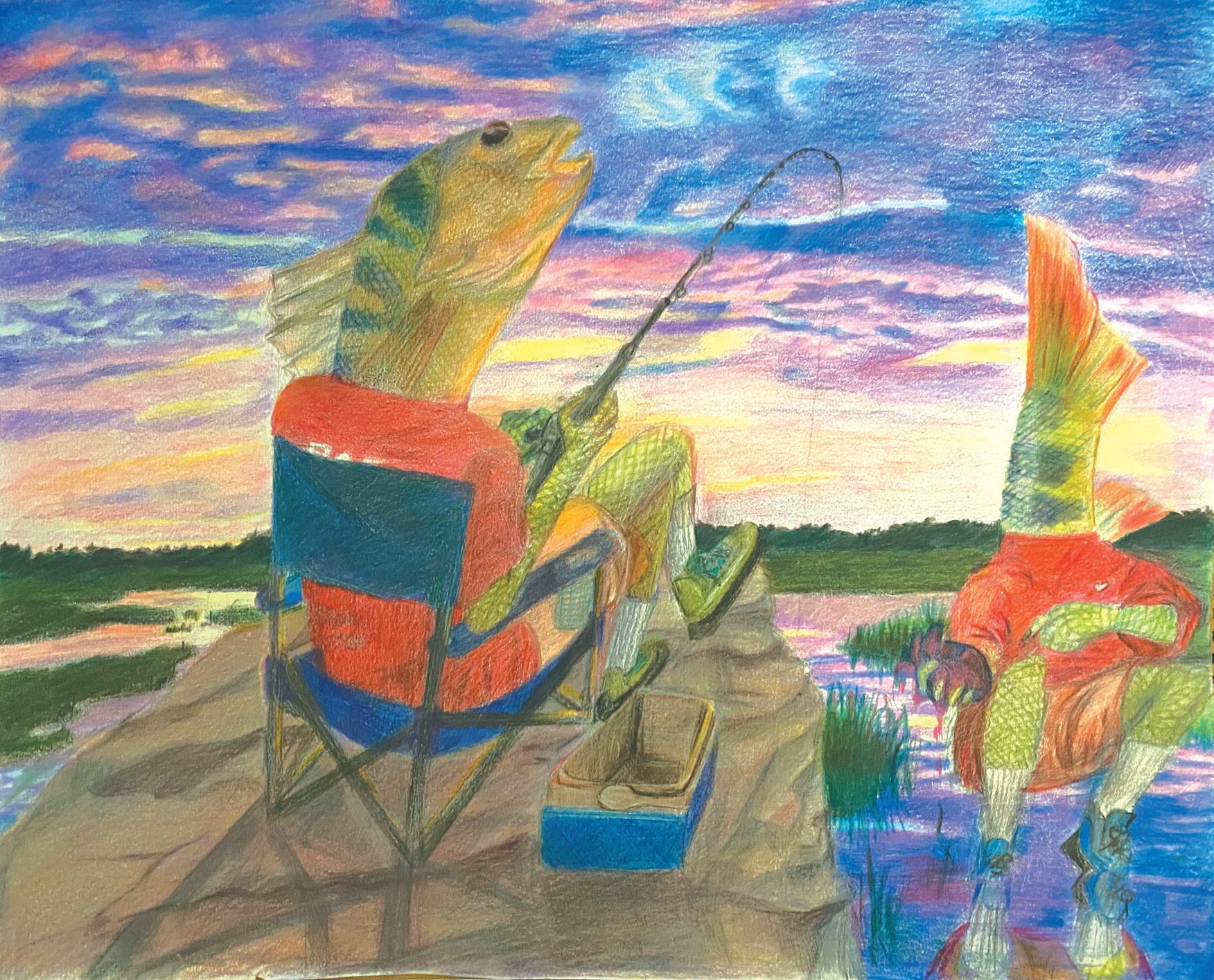
Angela Pan Friend of CMHE/Community Member
My dad used to call himself Elsa. He bragged about his superpower of being able to sport his summer shorts in freezing weather, even while conquering snowy ski slopes. People around him marveled at his resistance to the cold. They always joked about it in winter months when he was never spotted in long sleeves or pants. I could tell my dad secretly enjoyed the teasing, though. He thought his ability made him stronger.
Colorectal cancer stole that part of his identity. I had never seen him wear long pants or jackets before his treatment began. And I had never seen him feel so defeated over having to do so. Not only did cancer take away Elsa, but it dulled his life in countless aspects. Chemotherapy made his jaw muscles clench and freeze when he tried to eat, taking away the enjoyment he once had for savoring meals. Everyone who knows my dad knows his love language is food. He resorted to eating chocolate to acquire the energy his body desperately needed. Though he had to stray away from his healthy habits, in retrospect, it seems chocolate might have been the best choice he had at the time. Fortunately, he still had sufficient energy for his favorite hobby, his daily 5K jogs, but his pace slowed significantly. All this on top of his fatigue, as well as his frequent and time-consuming hospital visits, stole a great portion of my dad’s life.
Our family saw his struggles, though he tried to conceal them. No one mentioned it, but I knew we were all trying to suppress the idea that recovery might not be possible. We recognized the gravity of the situation when my dad returned without treatment after several visits due to a of low white blood cell count. That was when it became clear we were more afraid than even my dad. True to form, he kept a brave face and showed little worry, anchored mainly by his religion. He tried to relieve our concern by recounting his experiences at the hospital. He laughed as he told us about his friendship with his nurse, Mary, once asking her to take out his chemo port after treatment so he could go jogging. Further, he bonded with other cancer patients, like Doris. Doris had the same treatment plan as my dad, and they connected through their shared adversity. We all felt relieved knowing he could find joy despite his situation.
The greatest news I have ever heard in my life was when I learned my dad was cancer-free. After 12 cycles of chemotherapy and what felt like endless months of illness and fear, my dad beat cancer. My family even went on our annual spring ski trip the next year, and my dad could still handle the same steep black diamond slopes with a grin on his face. No longer Elsa, he was clothed in actual, thick, warm ski clothes — for the first time. It was better to see him as himself rather than as Elsa.
When we returned to our cabin after our first ski day, we set the fireplace ablaze to contrast the frosty white blanket outside the window. It was silent, but my mind was filled with noisy thoughts. I glanced at my dad, who was almost completely himself again, and I remembered what he had been through, but also that he was able to find light in his darkest moment. And he found that light through the people who were there to support him. Of course our family supported him, but the people he encountered at the hospital added color to the most monotone of environments. Without people like Mary and Doris, he would not have been able to laugh while telling the funny story about how he routinely asked for his chemo port to be removed so he could jog. He would not have been able to have someone to talk to during his multi-hour chemo sessions — much less someone to relate to. This hearth in Colorado is where my eyes were opened to the fact that people like Mary and Doris played a part in his recovery, not only physically, but also spiritually. His soul was revived by the incredible healthcare staff and his fellow cancer patients in the hospital community.
Richard Usatine, MD Faculty
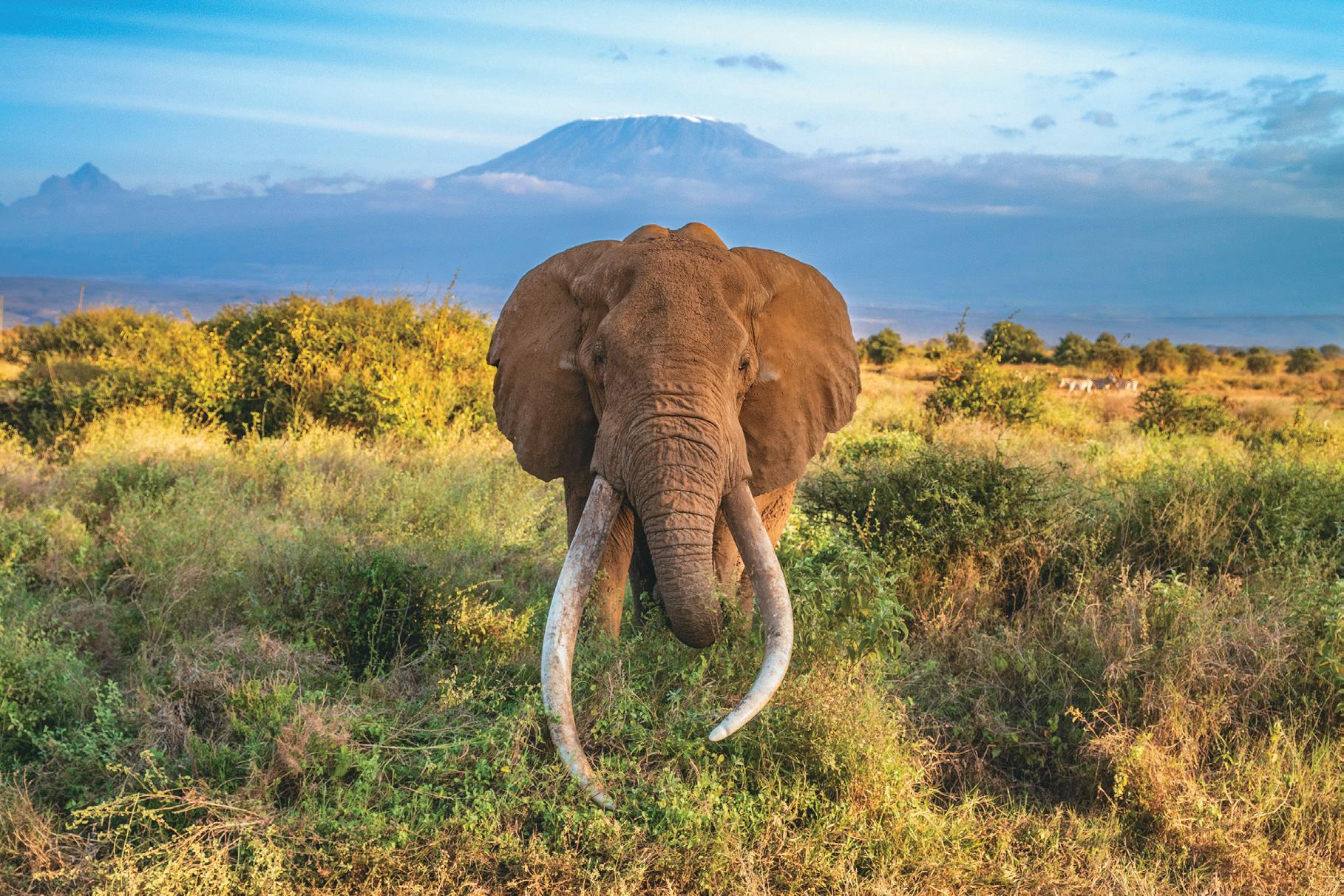
Craig, the magnificent elephant is one of the oldest super tuskers in Africa and symbolizes effective conservation because he has survived decades of poaching. A super tusker has tusks that weigh more than 130 pounds each; there are fewer than 20 super tuskers left in Africa. What a privilege to photograph him with Mount Kilimanjaro in the background.
Digital Photography
Richard Usatine, MD Faculty
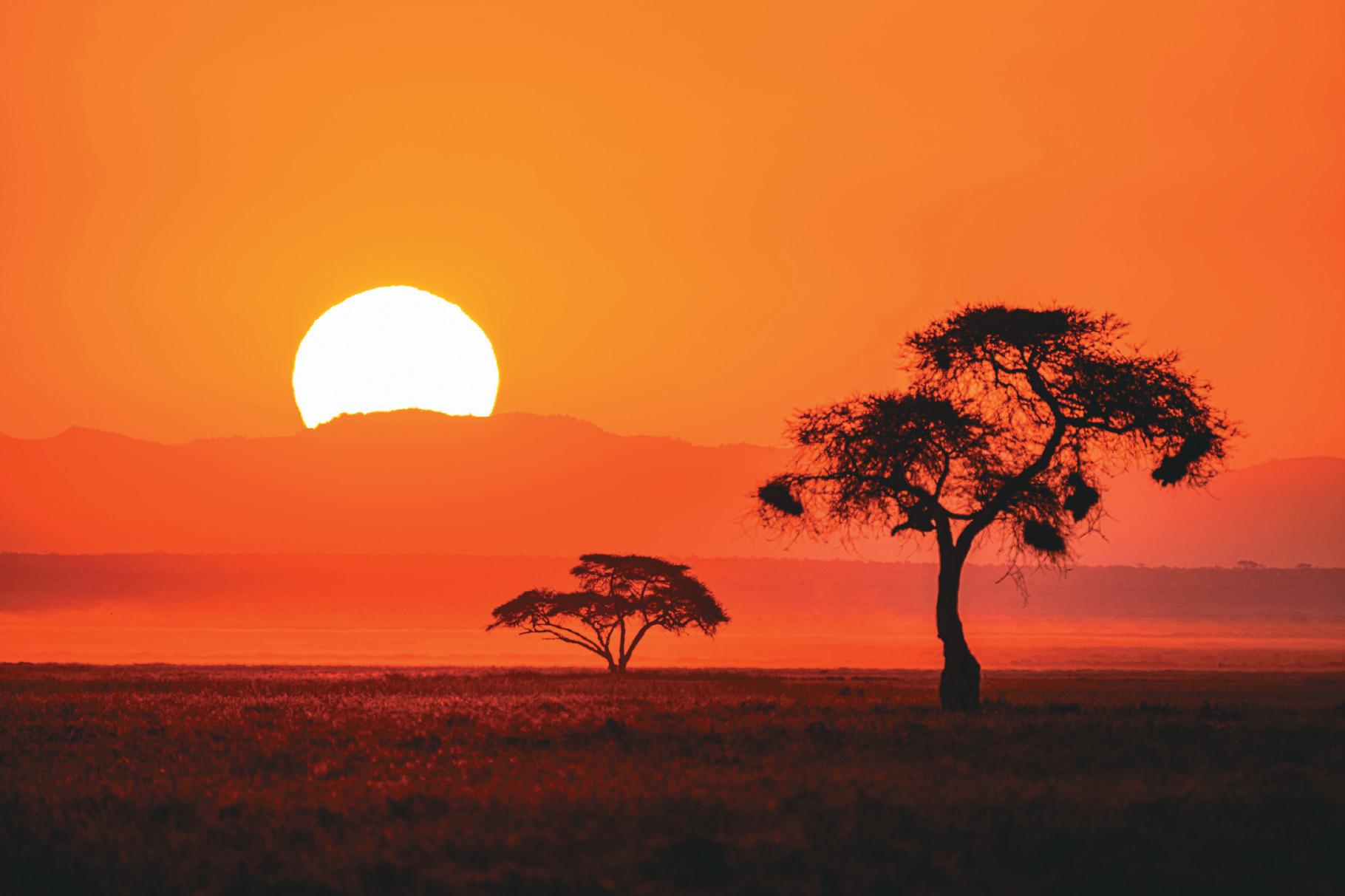
Sunrise over the Masai Mara in Kenya in which the colors of the sky and landscape have an orange glow. The sun brings light and warmth to the land as the hearth brings light and warmth to the family. The Acacia trees are a defining feature of the Masai Mara's landscape and the name comes from the Swahili word mara, meaning "spotted land."
Yasir Syed Student, Long School of Medicine, Class of 2027
Mason was a Cloud9® guy. Because he was a Cloud9® guy, and all his friends were Cloud9® people, he invested two months of wages to purchase the Cloud9®’s Retrospectoscope™ porting surgery and not the inferior Vizion Pro Memory Redux. The anesthesia alone cost a fortune. But it was worth it. He dreamt of wearing one, going back and seeing how the world was when he was younger. Recently he had been pretending he was wearing it in the dark, feeling around his head where the various knobs might be.
His shrink said he was depressed, and since he was depressed, he was pushing everyone away, and because he was so lonely he was getting more depressed! What an absurd cycle that ended in Mason getting progressively sicker. The Retrospectoscope™ could fix that — it would fix it. If his life sucked, he’d just go back to when it didn’t.
On the day he was scheduled for the surgery, Cloud9®’s doctors punched out squarish holes in his cranium to fit the ports. Wires threaded from his neocortex through each facet of his limbic system, tracking the nodular implant into the hippocampal cores like an ant carrying a string through a snail’s shell. Upon interface with the Retrospectoscope™ (sold separately), Mason would be allowed to envision his memories as if he were there.
The morning after leaving the hospital, he sent images to all his friends. They laughed, surprised he was able to qualify for it at all. Some believed it was a farce for clout. He shrugged them off. He sought them out to see for themselves, but it was nearly Christmas. Mason didn’t realize until they said so. He would have no plans. His family was too far to approach, and all his friends were leaving.
But first he needed a machine.
Mason plugged a request in the local online marketplace. Need a retro. Will take Anything cheap!!
He met a seller in a trench coat. “This is an early model. Got my hands on it. Don’t need it. A thousand and it’s yours.”
“Come on. A thousand is nuts. I can do eight.”
“Fine. It was used and tossed. No one wants the first gen models these days anyway.”
Mason kicked a bag of trash over to make room on his mattress. He looked around his filthy studio apartment then inspected his new Retrospectoscope™. The model was strange. It was real, judging by the neural interface connector thumbprints, but even the first gens came with temporal sequence anchors to scrub memories. Was it unreleased? Could it just know what one was thinking and scrub that exact memory? It used to boot with
internal memory… was in testing for a long time.
Mason whistled as he researched. That goober had no idea what he had. It was a prototype without a scrubber, without a tether. Just in time for Christmas.
Mason lay in bed and plugged the scope in.
It whirred to life. He thought deeply of home. He thought of a warm fire, his family around it wearing the ugly sweaters that his niece Sherry picked from a pile. Warm lights. The smell of pot roast in the oven instead of the roaches that burned in his microwave. As he thought, as he remembered, hot tears streamed down his face. How long it had been since he had people look at him like that — with such recognition and love that he belonged there.
Mason grit his teeth. He felt his face tighten. He couldn’t move a muscle, but wasn’t seeing a memory either.
Integration failed. Electricity arced through his back, and his muscles spasmed hard. It all hurt! Mason forced his hand to the emergency latch, but this model had none.
Images flashed, blurry, one after the other like his life was flashing before him. Mason recognized nothing. Foam fell from the corners of his mouth.
The images slowed, and a memory did form. Mason’s consciousness sputtered. He was on his last dregs when he noticed beds, fences… buildings outside. The scene switched. He was at work, attaching, and soldering elements. But Mason worked retail in Seattle. He had never seen a factory, or had he?
Images melded together again, and suddenly he was on the lower bunk.
“Fine. It was used and tossed. No one wants the first gen models these days anyway.”
That’s right. I’m Abdurehim Li Ming… no I’m Mason, he thought. But when he looked at his hands, he saw lines that he never earned. When he sat upon his bunk and looked around, he saw Tursun Zhang Qiang, his best friend! How they made electronics manufacturing fun and caused mayhem around the camp. When they had peered through the separation fence, they could see Li Ming’s wife, Zohre Ming Xie. along with the other working women.
The scene changed again, and he watched good-natured Wang Wei get crushed in the plate press. How Li Ming was beaten for refusing to work the plates after being covered in what was Wang Wei.
Then it was his birthday. Mason’s birthday on a cruise his parents took him on. I’m Mason. Mason. The Retrospectoscope™ was faulty and was not cleared before sale. It was contaminating his memories. What he was seeing was someone else’s from the internal boot memory, and it was becoming harder and harder to tell the
difference. Mason tried to tether himself. He watched the rolling blue waves. The severed fingers of Li Ming’s fellow prisoners drifted atop the white crests. I am…
He tried to reach for the plug, straining desperately to cut the cord before he lost himself in the machine. Mason had heard of people who got stuck in the memory machines. Cloud9 wiped out those stories with promises of safety, but he’d seen it happen online. It happened to a Levant veteran. That poor man’s brain broiled into lasagna before his kids finally pulled it off of him.
Mason’s hand fell limp, and he was again rubberbanded to Uyghur China.
It was a bitter winter, but was Eid and Li Ming had wanted to celebrate. His small toe was clamped off from frostbite. Smoke drifted from the perimeter buildings, the smell reminded him of what meat tasted like and what fire felt like. Zhang Qiang and Wang Wei lay a puck of rice before him. Rations for the laborers were short again. Wind froze his flesh to bone. The covers did little to deny the wind, so the men got close and huddled for warmth and told stories together.
And he was Li Ming as well as Mason. The latter was split from himself and foreign within his body, seeing with eyes that were not his, with friends that were not his, but that Christmas Mason was not alone.
This is a story about how people are connected through consumerism instead of duty and family. In turn, they are disconnected from the commodities they consume and the labor it takes to produce them.
Acrylic
Mariana Suarez-Martinez Staff, Department of Emergency Medicine
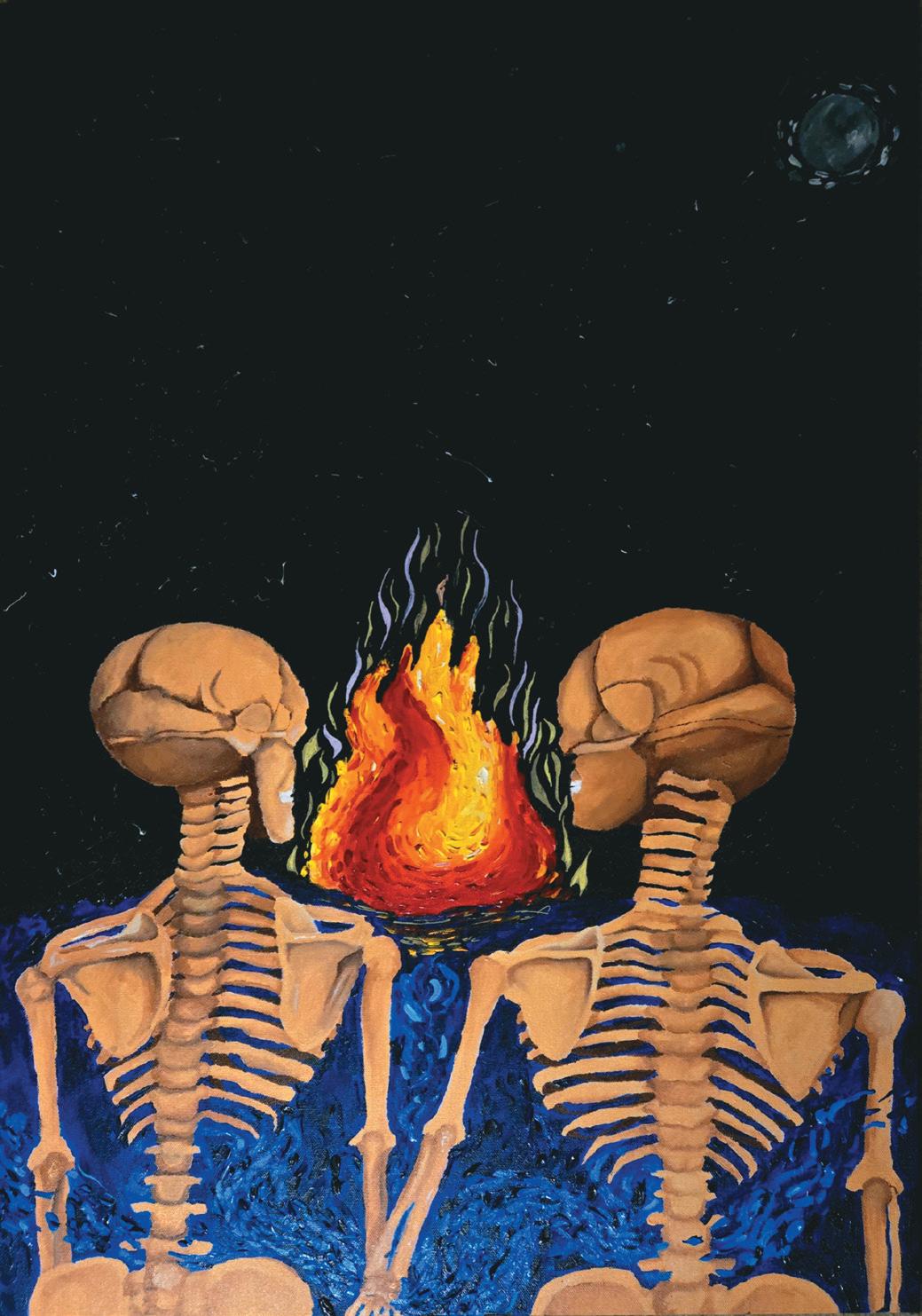
The warmth of the hearth keeps the memories of our loved ones everlasting. While we return to the sea and stars, it's important to hold each other for as long as time permits.
Digital Photography
Sammy Russell
Student, Long School of Medicine, Class of 2025
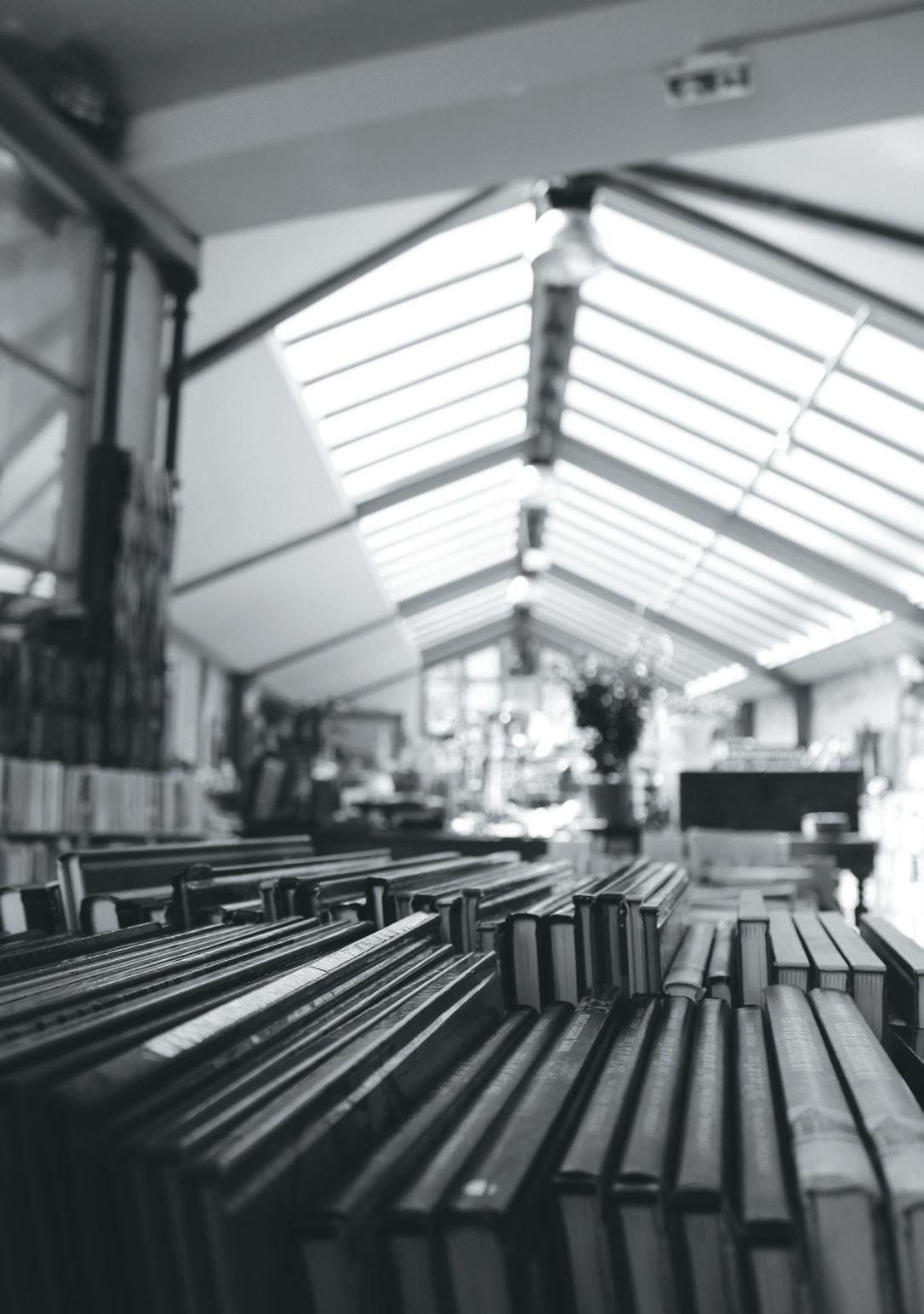
Abishek Soni Student, Long School of Medicine, Class of 2025
This orphan suffered such travail to birth
This glistening world of heavenly progeny:
Widowed before those gods could walk my earth, Who thus ordained for me this destiny?
How innocent, the hymns of the dawn’s dove, Or jubilant, even the swallow’s call, Or raven, prophet of the stars above; Yet man’s chorale is most beautiful withal: Its melody the distillate of love, But love whose choir celebrates my fall.
Their clamor now will suffer me no rest While deafened ears hark not to my lament; The barley grown from the milk of my breast Now smokes to singe my skin, this firmament. What sculpted clay can ever be divine?
Misshapen cruor cast me enemy:
Myth stylus-graven to a twisted sign
From the ichor of my stolen memory. No mother’s name now as reviled as mine, Not even the gentle wind embraces me.
Follow Euphrates’ reeds, my dear midwife, For fragile are the walls of Babylon; Soon, I shall brandish the empyreal knife Against my womb whence nothing good can spawn. My haemorrhage will become a sanguine flood, A deluge to swallow that proud redoubt.
’Til molten are all once molded of mud, The old gods soulless as their blind devout, ’Til their lungs all drown in sapphire blood, I will bleed until the stars are blotted out.
So blissful will the silence be
When all who have forsaken me, Like fish, shall fill the sea.
This poem is about borderline personality disorder. A significant hallmark of the disorder is a fear of abandonment. The speaker in this poem is Tiamat, the Mesopotamian goddess of the sea and mother of the universe. She was slain by her descendant Marduk, God of Babylon, with her body turned into the sky, her tail the Milky Way, and her eyes into the Tigris and Euphrates.
"Four Generations of Harvest (Ostrowiec, Poland)"
Digital Photography
Ania Rogalska, DO
Resident/Fellow, General Surgery
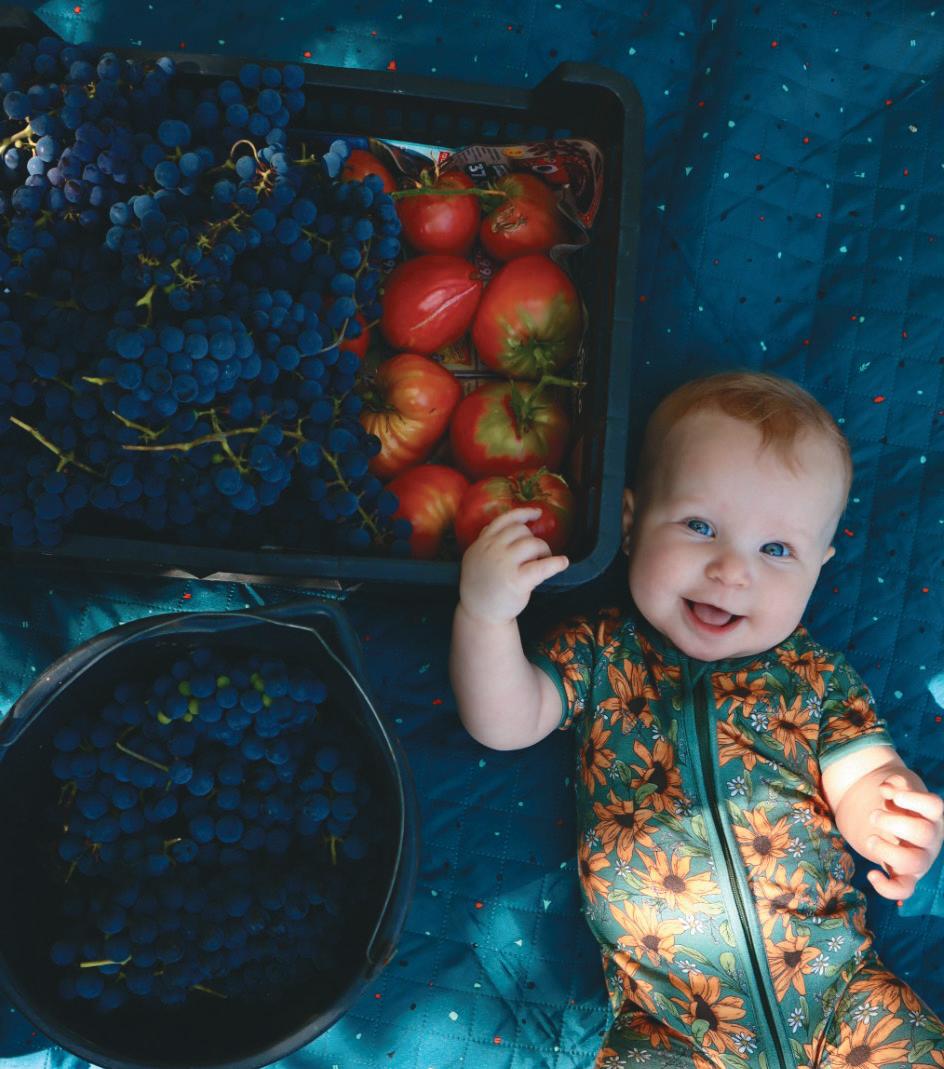
"Lake
Digital Photography
Mikayla Lerman
Student, Long School of Medicine, Class of 2026

Diego Rojano, Malak Husseinali, The Junes
Student, Long School of Medicine, Class of 2028
From album “Year of the Beetle”
Lyrics:
hello… hello? i tried a carbon message the dent inside my head letters on the nighstand and still i wish i said don't want to stare at the ceiling wondering what i did when all i'd ever do is be too good for you don't hide, i know you’re wide awake afraid of sun, you dessicate in my ray
i want to eat the dirt you walk upon i wonder what it was
the bugs you eat become intestinal i want to see you rot
rip apart the roots inside your veins limbs of petal throw them all away
rip you up, i dont want to rip you up i just want to love rip you up, i dont want to rip you up i just want to love
i want to eat the dirt you walk upon i wonder what it was
the bugs you eat become intestinal i want to see you rot
rip apart the roots inside your veins limbs of petal throw them all away
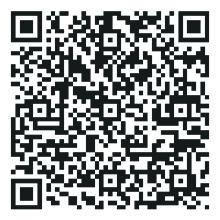
"Moving on. . ."
Digital Photography
Maria Fernandez Falcon, MD
Faculty
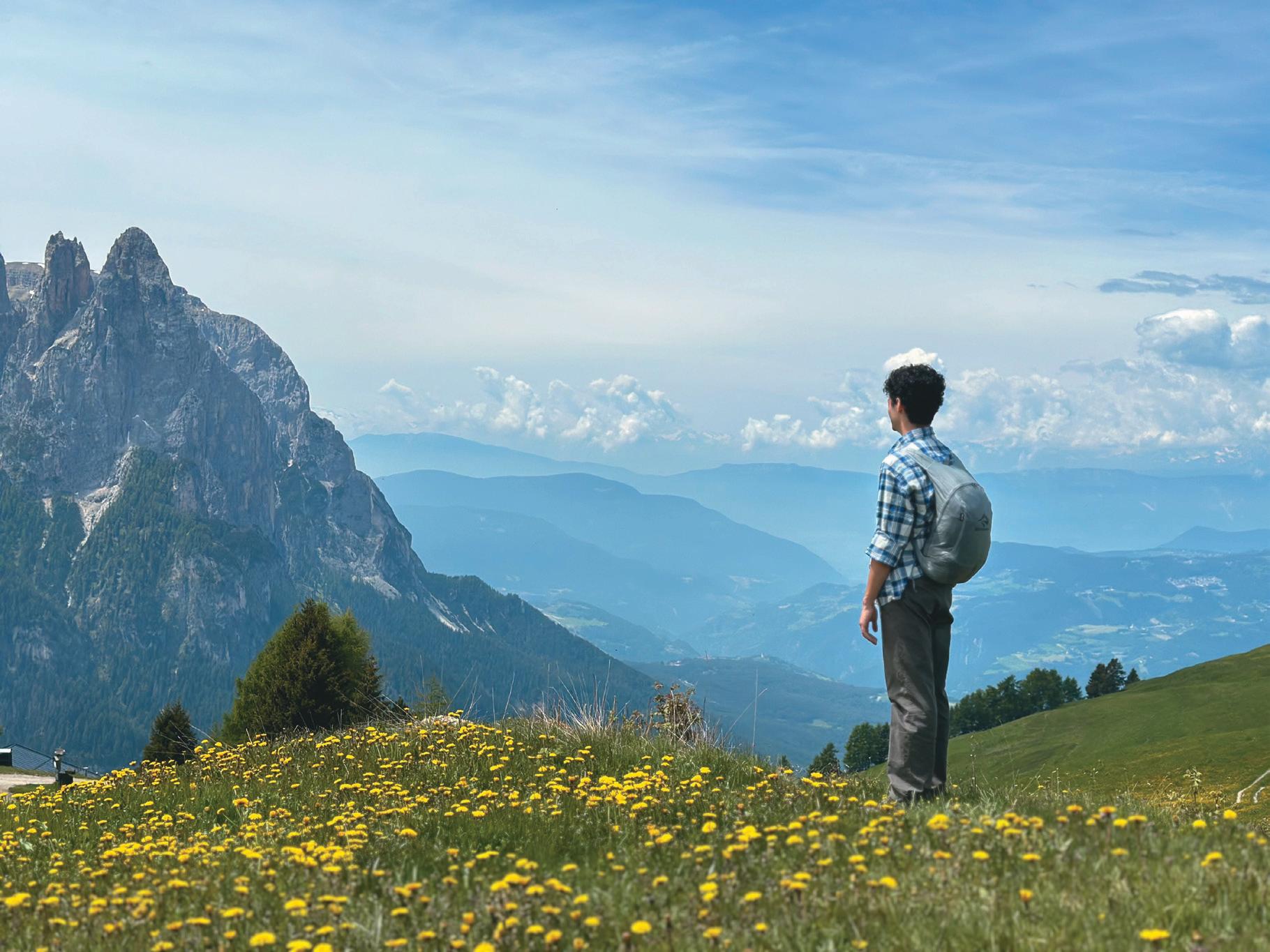
This was our first visit to Italy. Our oldest son, a new adult, is contemplating with awe the Alps — the same mountains that his great grandfather crossed many times for work. While taking this picture, I thought about the immense sacrifices that families of immigrants like me have made to give our children a promising future.
Digital Photography
Jacob Luddington
Student, Long School of Medicine, Class of 2026
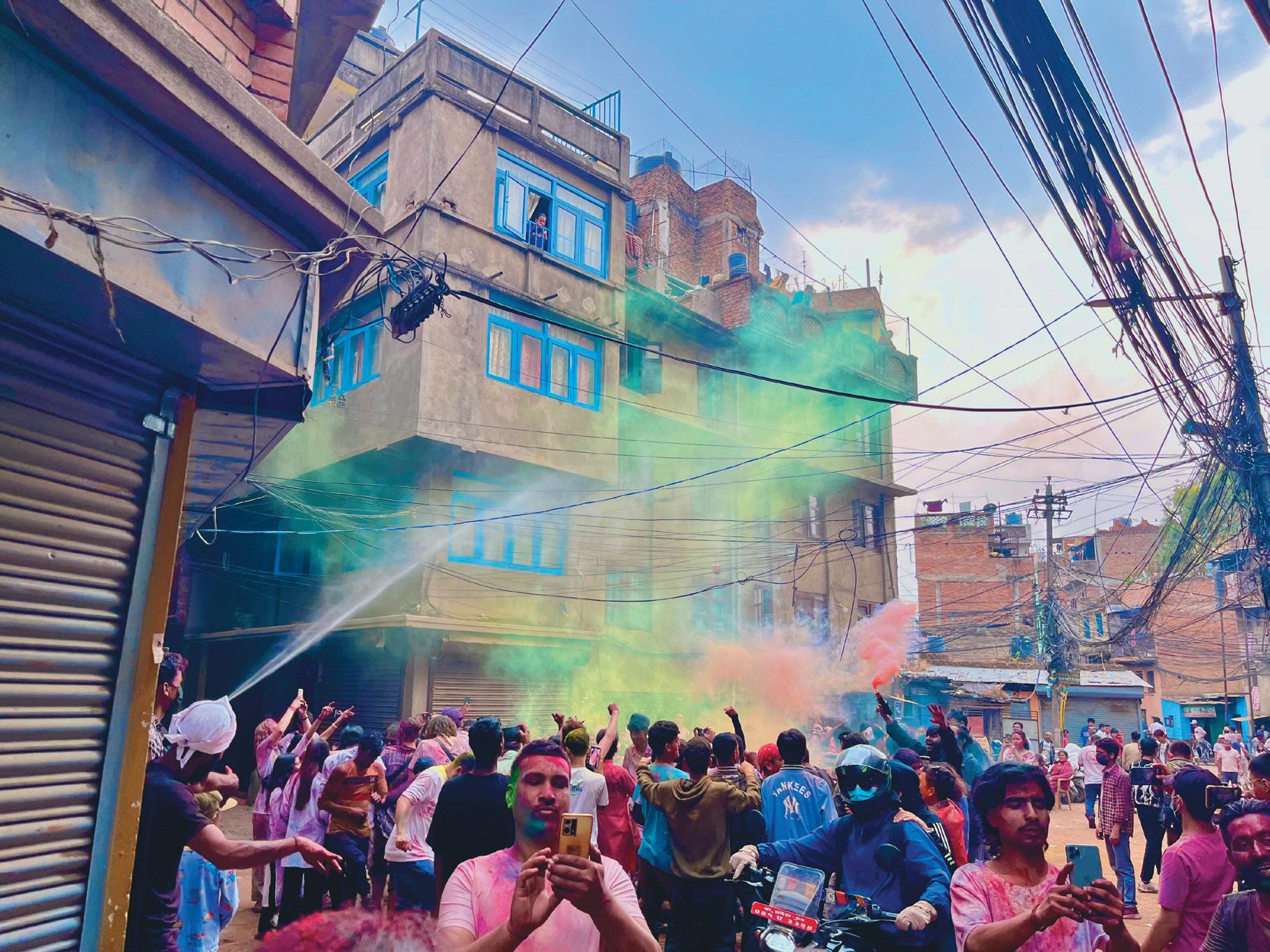
Strangers gather in the streets of Kathmandu to celebrate Holi.
Lacy Lichtenhan
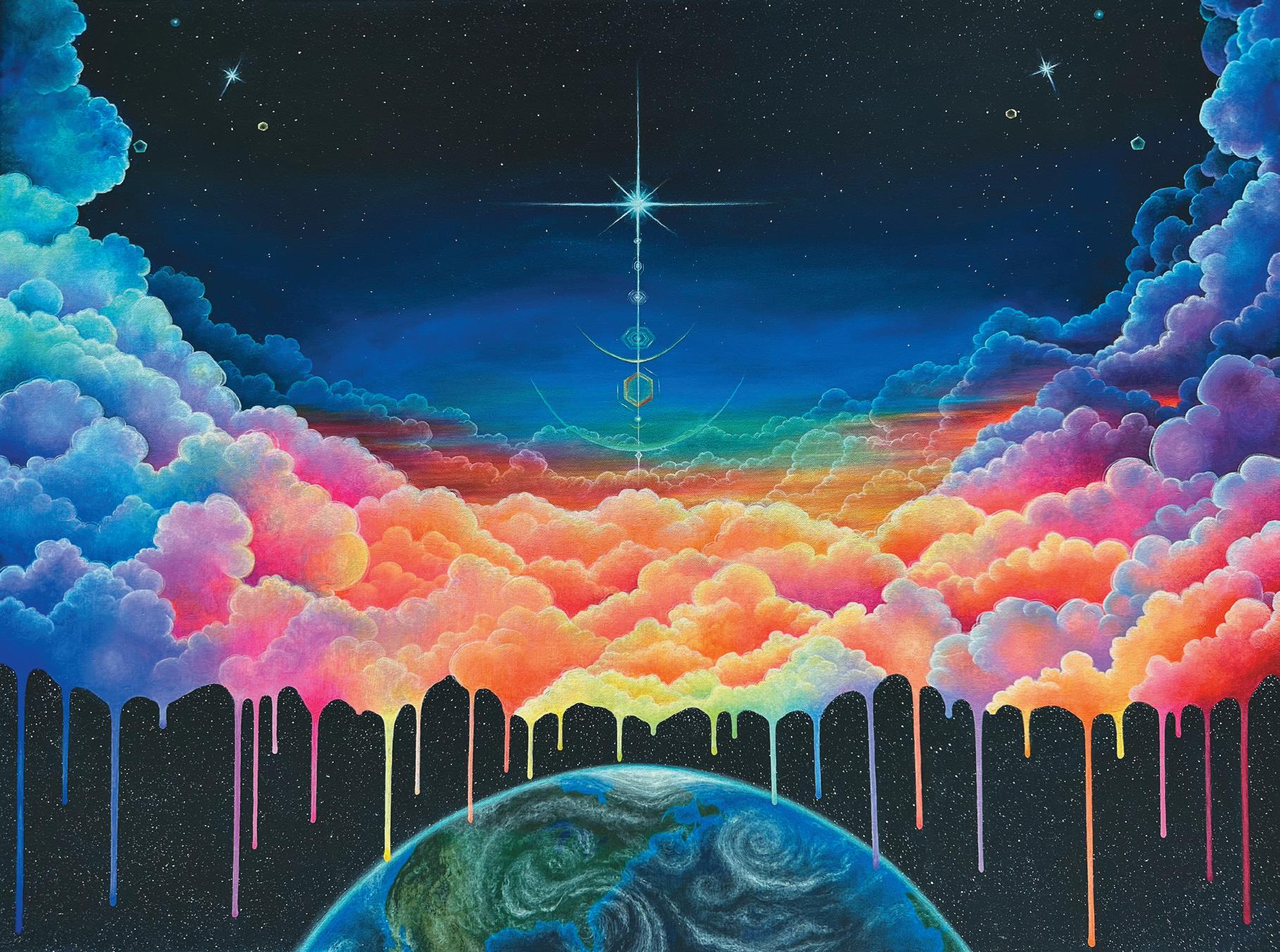
Kawika Dipko Student, Long School of Medicine, Class of 2026
If roles were reversed
And I lay on the bed
Unable to move
Or choke out a sound
But I understood your commands And desperately wanted
To show I’m still here
But my body wouldn’t listen
What would I want
You to know about me
As you do your best
To assess my plight
If roles were reversed
And I’d rather be dead
Because you’d brought me back
And the reality of my world
Was settling in once more
What might I feel
When you press me for details
And I divulge my mistakes, my vices
The things I hate about me
Because you still have hope
For my wounded mind
If roles were reversed
And my organs were failing
Toxic waste piling up
Inside every crevice
And churning my insides
With poisoned blood
Blurring thoughts in my brain
What am I supposed to say
When you ask how I feel
When the fact of the matter
Is that I cannot remember
What “good” really feels like
If roles were reversed
And the cancer had returned
With its crushing weight
Demanding once more I take a stroll through hell
What would I want
You to do or say
Or maybe not do or not say
Might I just want a moment
To grieve, to be afraid
To take time to accept
The thorn-ridden path laid before
Each day I’ll give thanks
For the breath that I have
The movement I possess
The memories I retain
The intact regulation
Of both body and mind
That permits me to stand
At your hallowed bedside
Committed to care
With compassion, dignity, respect
As I hope you’d do for me
If roles were reversed
"At the Center of it All…"
media collage on paper
Thomas Hoang
Student, Long School of Medicine, Class of 2025
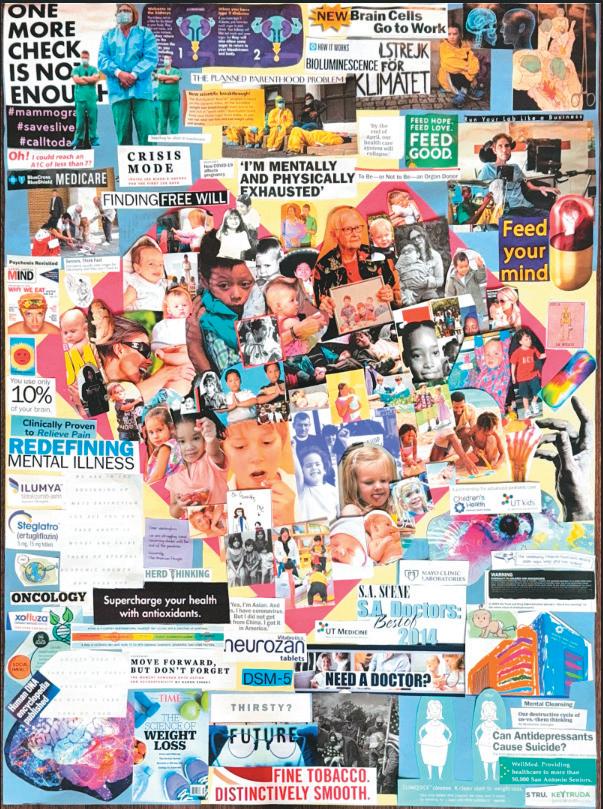
At the center of it all... is a collage piece that features a heart shape filled with children surrounded by clippings of various healthcarerelated headlines, drug companies, healthcare organizations, and insurance companies. As aspiring healthcare providers, it's important to recognize all the noise that crowds up the healthcare picture for patients, but at the center of it all, the patients should be our priority.
Digital Photography
Kim Clendenen Staff, Strong Star ORU
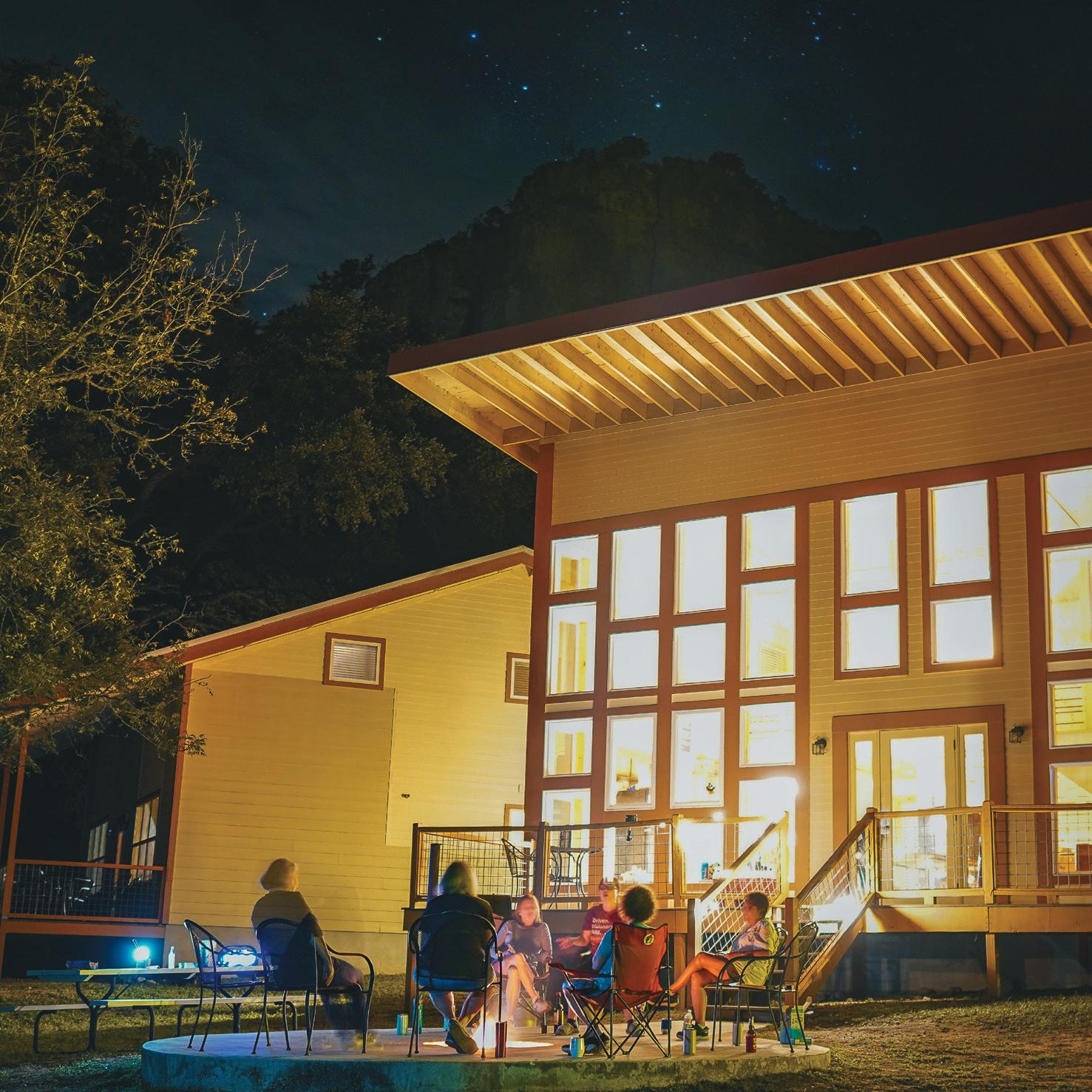
Digital Photography
Jose E. Cavazos, MD, PhD Faculty
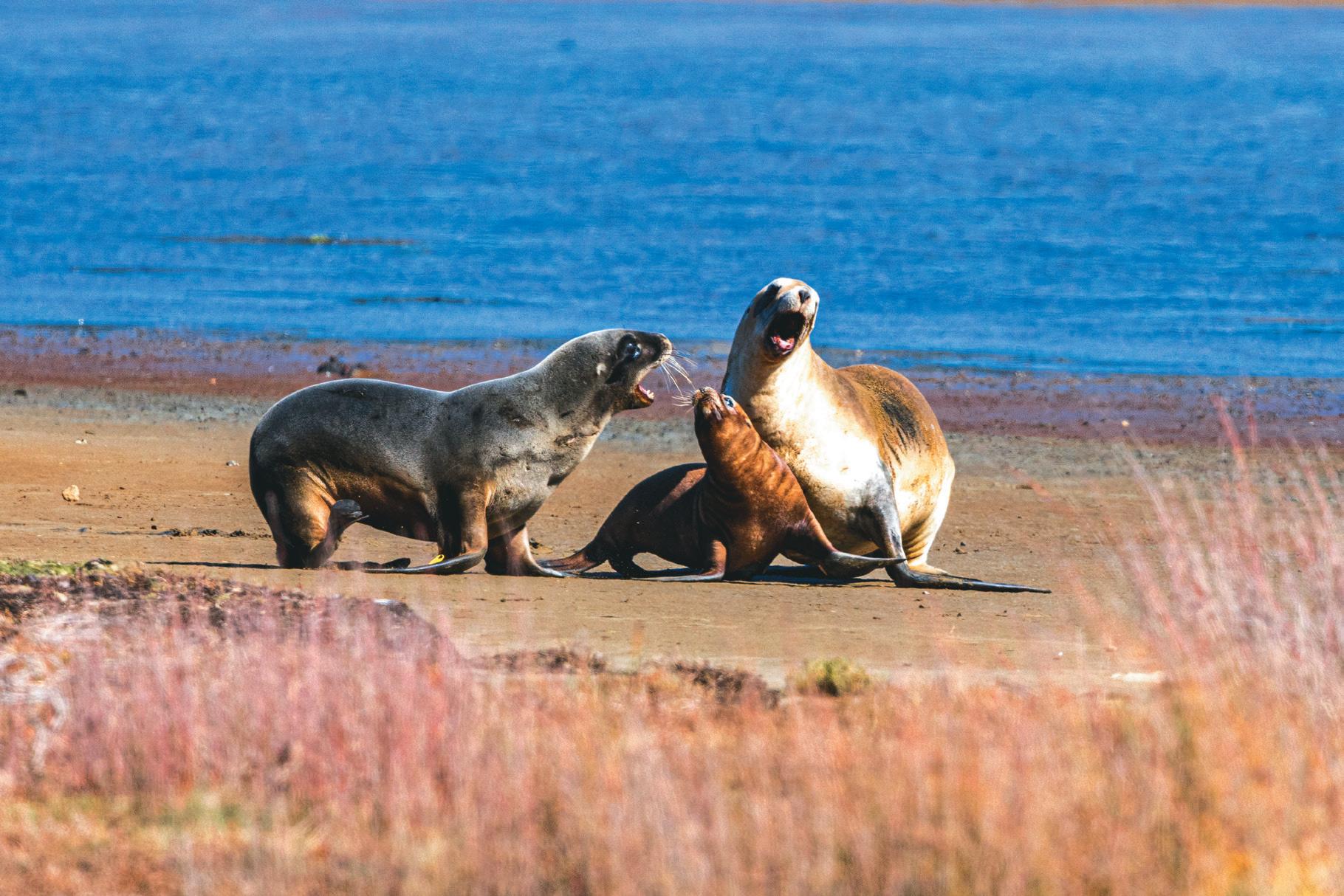
Sea lions having a family conversation.
Samantha Sanchez, MD Resident/Fellow, Pediatrics
The girl I was before Sometimes I feel her in the shadows, Fluttering, trying to escape when a moment of Light pierces through. Most of the time, I don’t feel her at all.
I’d almost forgotten that person even existed. The one who inhaled words, And exhaled stories. Who lived in other bodies and other times.
Now, stolen moments are all I get with her. It takes days to coax her out of those Shadows.
And days are a luxury I do not have. Those days belong to simply trying to survive.
But when I feel her there, On those occasions when I have the time, And that light starts to peek through Before being shut out again in the face of this endless drone for survival,
I feel the hope anew. Hope that one day I’ll have not days, but Weeks, Or months, Or years, And I’ll get to meet her again. The girl I was before.
Beverly Hu
Student, Long School of Medicine, Class of 2026
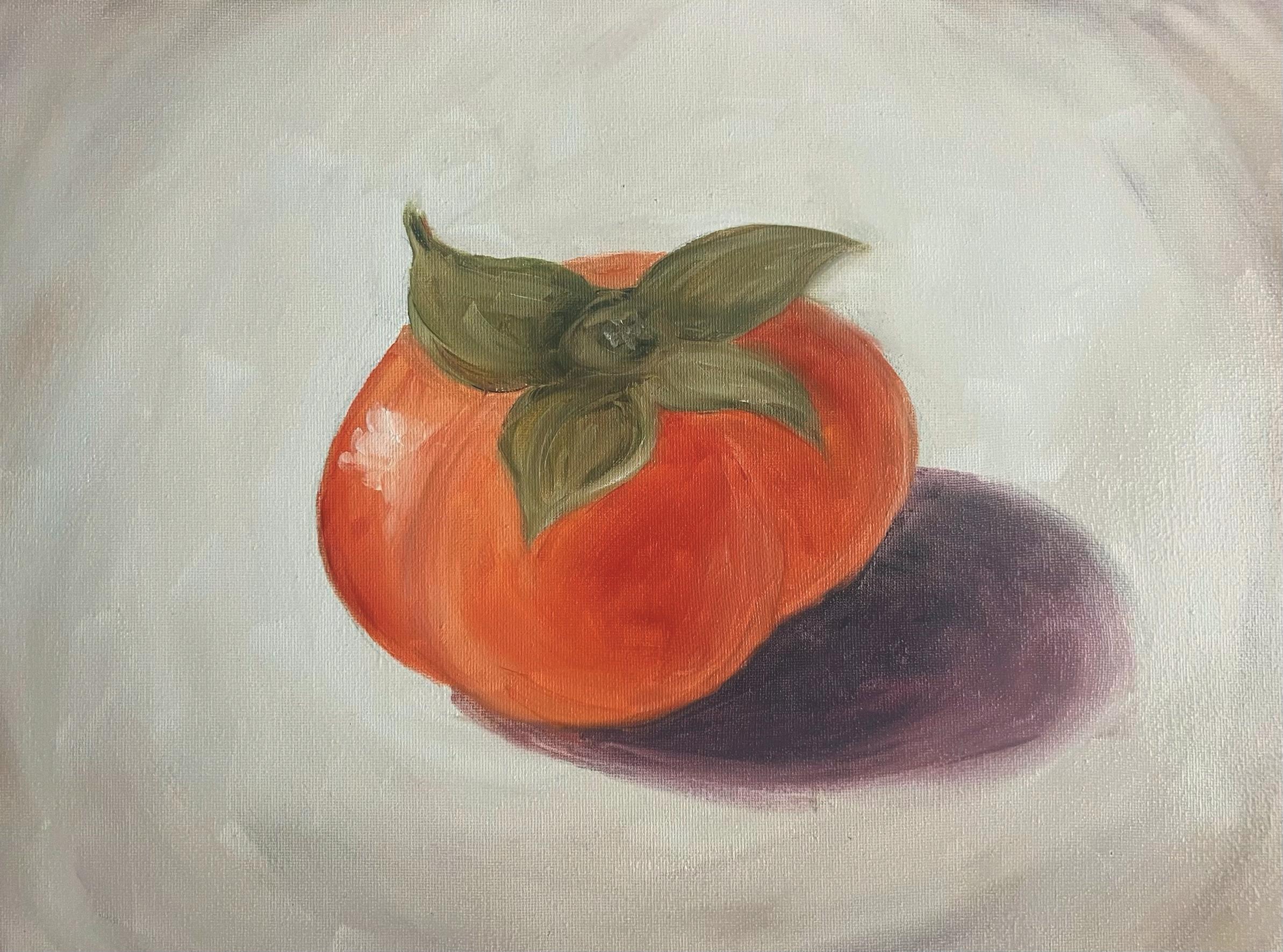
Persimmons are a symbol of good fortune and happiness in Chinese culture. Growing up in Southern California, I remember my parents harvesting fresh fruit from the persimmon tree in our backyard every autumn.
Digital Photography
Mikayla Lerman
Student, Long School of Medicine, Class of 2026
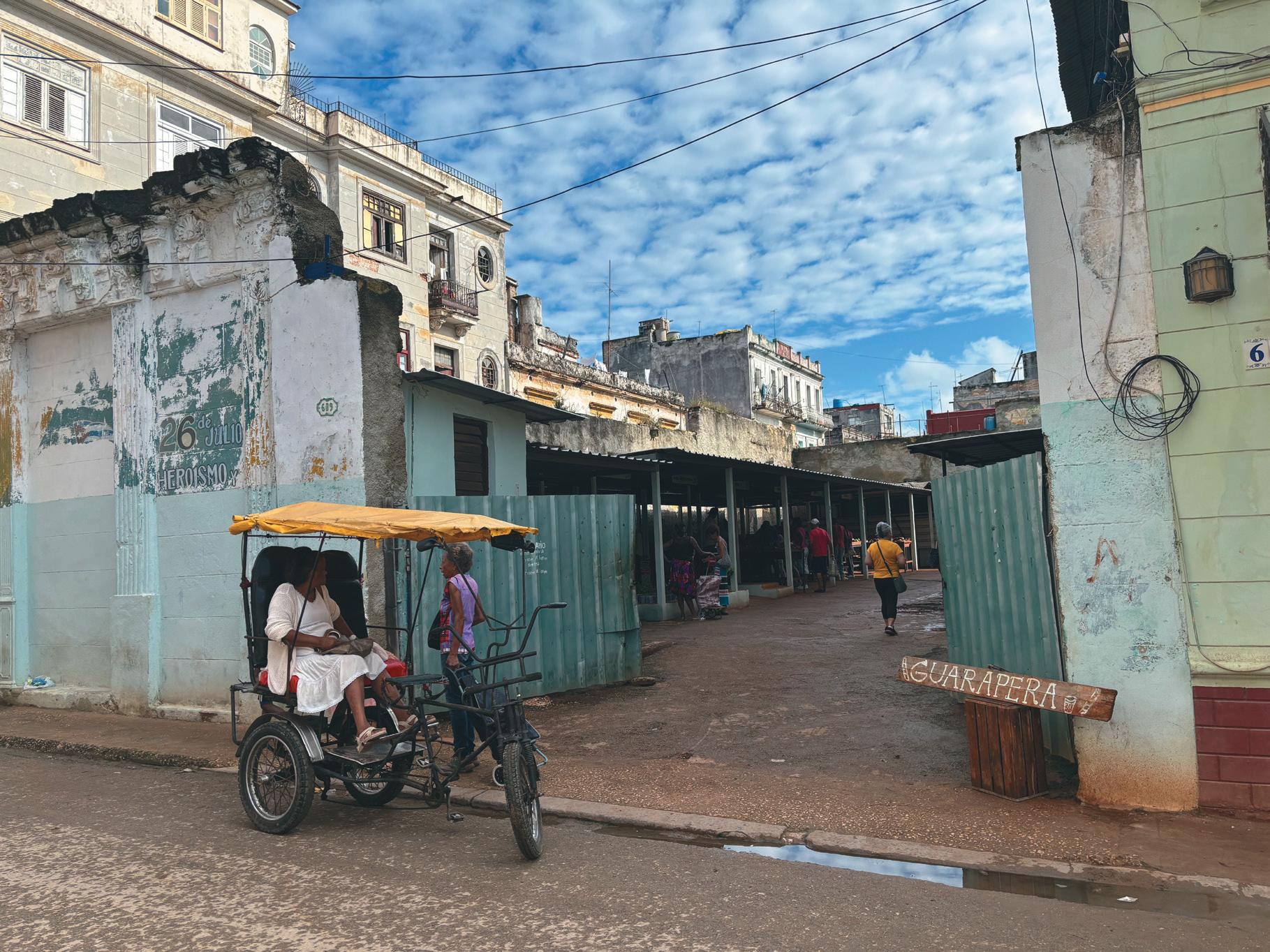
Kawika Dipko
Student, Long School of Medicine, Class of 2026
Sinking, sinking, Into toxic oblivion
Thinking, thinking, Chronic sickness you’re living in Fighting, fighting, Weapons of modern medicine
Rethinking, rethinking, Imaging, labs, run again
Hoping, hoping, For cure beyond ability
Attempting, attempting, Efforts damned in futility
Facing, facing,
The constraints of reality
Accepting, accepting, The essence of mortality
Replace, replace, Curative with palliate
New aim, new aim, Basic drives to satiate
Slow pain, slow pain
Continue to deteriorate
Space, space,
Final moments to contemplate
Grace, what grace
Contained in that word “gracias”
No fue, no fue
Las noticias que esperabas
Embrace, embrace
Family conveys what love is, Strength, strength
Valor burns bright as sun sets
A reflection of a few patients encountered during the Internal Medicine clerkship who were waging the final battles in a war with chronic disease."
Andrew Ta
Student, Long School of Medicine, Class of 2026
We are taught the SPIKES protocol for delivering bad news: Setting, Perception, Invitation. Knowledge, Emotion, Strategy. But sitting with you now as you say, for the fourth day in a row, “good morning, doc!” through a tired smile and dried tears, my textbooks fall short, like explosions on deaf ears, and no words come out.
For the many patients and families this year who continue to show me how to be a better, more empathetic physician. This piece was inspired by a terminally ill patient on the gynecologic oncology service who was transitioning to hospice care.
"Starry
Digital Photography
Maribel Salgado, BSN, RN
Graduate Student/Post-Graduate, School of Nursing, Student Class of 2028
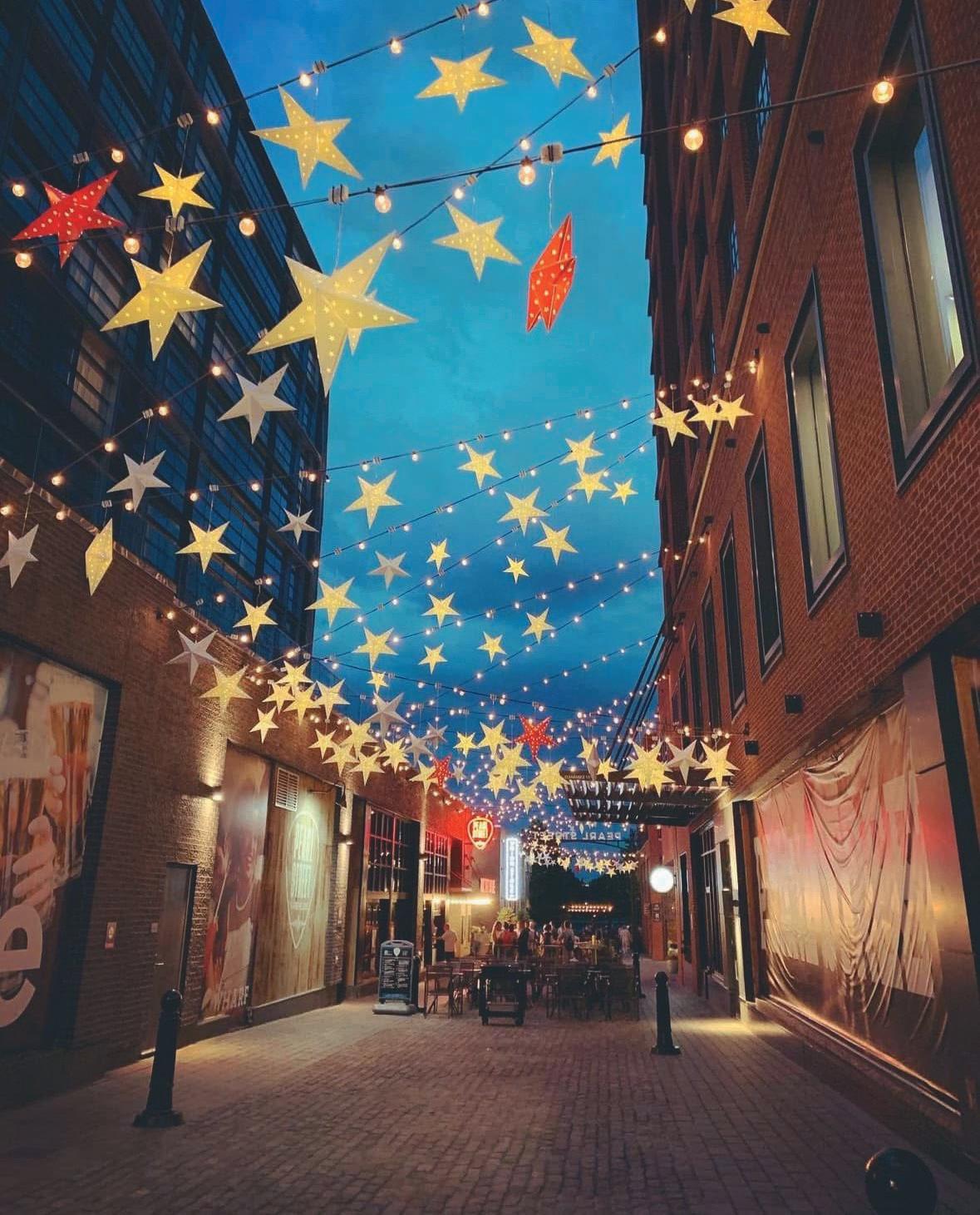
Sammy Russell Student, Long School of Medicine, Class of 2025
Taking inspiration from piano arrangements by "nattaliepiano" and "Patrik Pietschmann" on YouTube, I enjoyed putting together this version of Ludwig Goransson’s “Can You Hear The Music” from the film Oppenheimer.
Digital Photography
Craig Sisson, MD, MBA, AEMUS Faculty
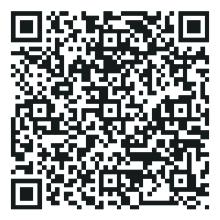

Alexis Ramos, MD Faculty
The first time I was mistaken for a nurse was during my medical school clinical rotation. Dressed in my white coat and stethoscope, I entered a dimly lit clinic room. “Hold on, the nurse is here,” the patient remarked to her cellphone before hanging up. I gently corrected her, stating that I was a medical student. The patient didn’t apologize; instead, she congratulated me for pursuing medicine as a woman.
The first time I was mistaken for a medical assistant was during my residency training. Adorned in dark scrubs, I was in the hospital rounding on my patients, as I did every 6 am. "Turn me to my left," a patient requested. I replied that I would, but I might need assistance from a colleague due to his size. “Why do I need two medical assistants when I haven’t even seen a doctor?” he asked. I explained that I was his doctor and would be happy to chat after we turned him. He apologized for the confusion and remarked that he was glad to see more Hispanic doctors.
The first time I was mistaken for a patient, I was in business casual attire for a meeting at the county hospital. “Ma’am, please return to your room,” a nurse directed me. I explained that I was on my way to a hospital committee meeting and showed her my badge. The nurse apologized, stating that I looked like one of her young patients.
The first time I was mistaken for a miracle-worker, I was talking with one of my continuity patients in clinic. She was having issues getting approval for a medication from her insurance, so I spent 30 minutes on the phone with various agencies with eventual success. We also discussed her two daughters and her love for San Antonio. “You’re a miracle worker!” she said. I replied, “I’m a family doc.”
Colored pencil on toned paper
Stephanie Batch
Student, Long School of Medicine, Class of 2025
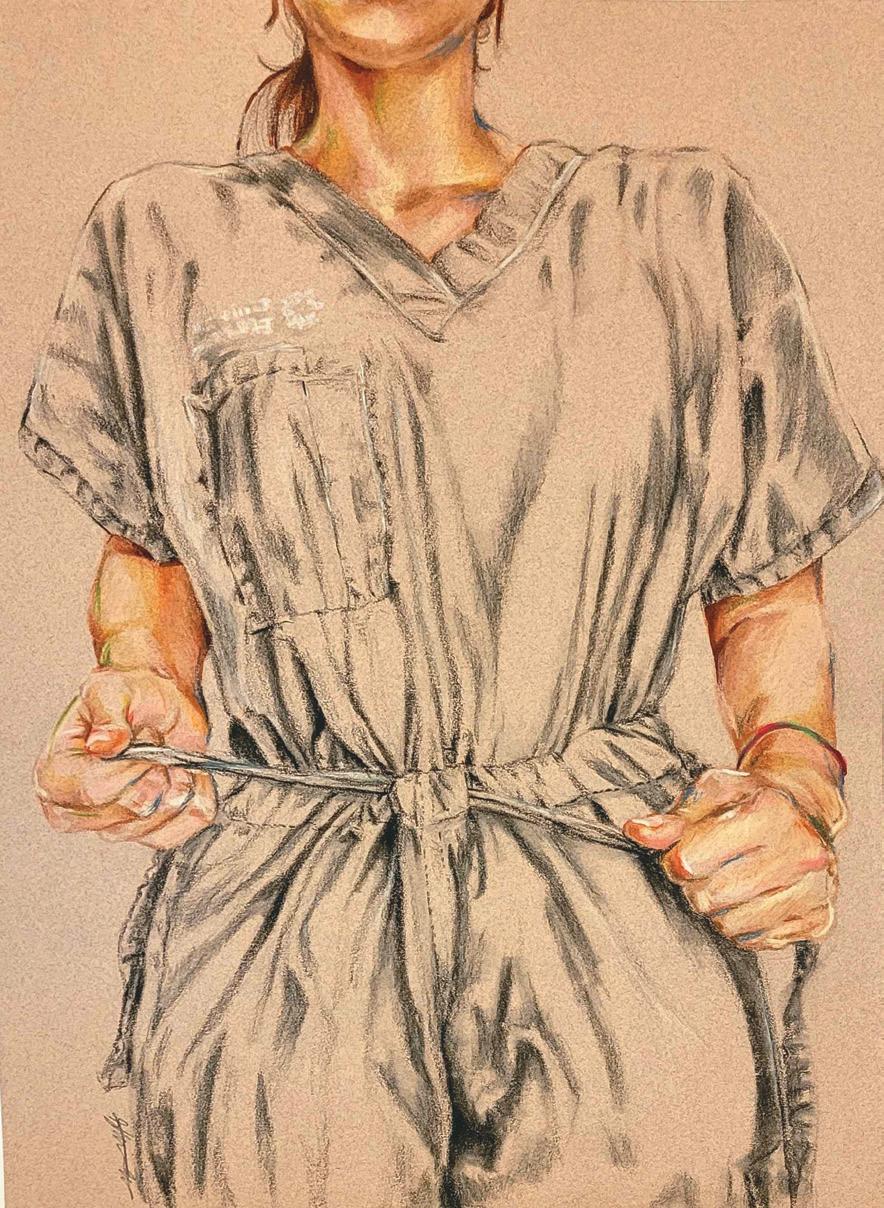
"Perfect Fit" is a series reflecting on my medical school years, tugging at baggy coats, cuffing sleeves, gathering and tying the fabric of clothes much too big for me. These experiences reflect coming into my professional and personal identities, growing into the clothes I wear, growing into expectations and responsibilities, and growing comfortable in my skin.
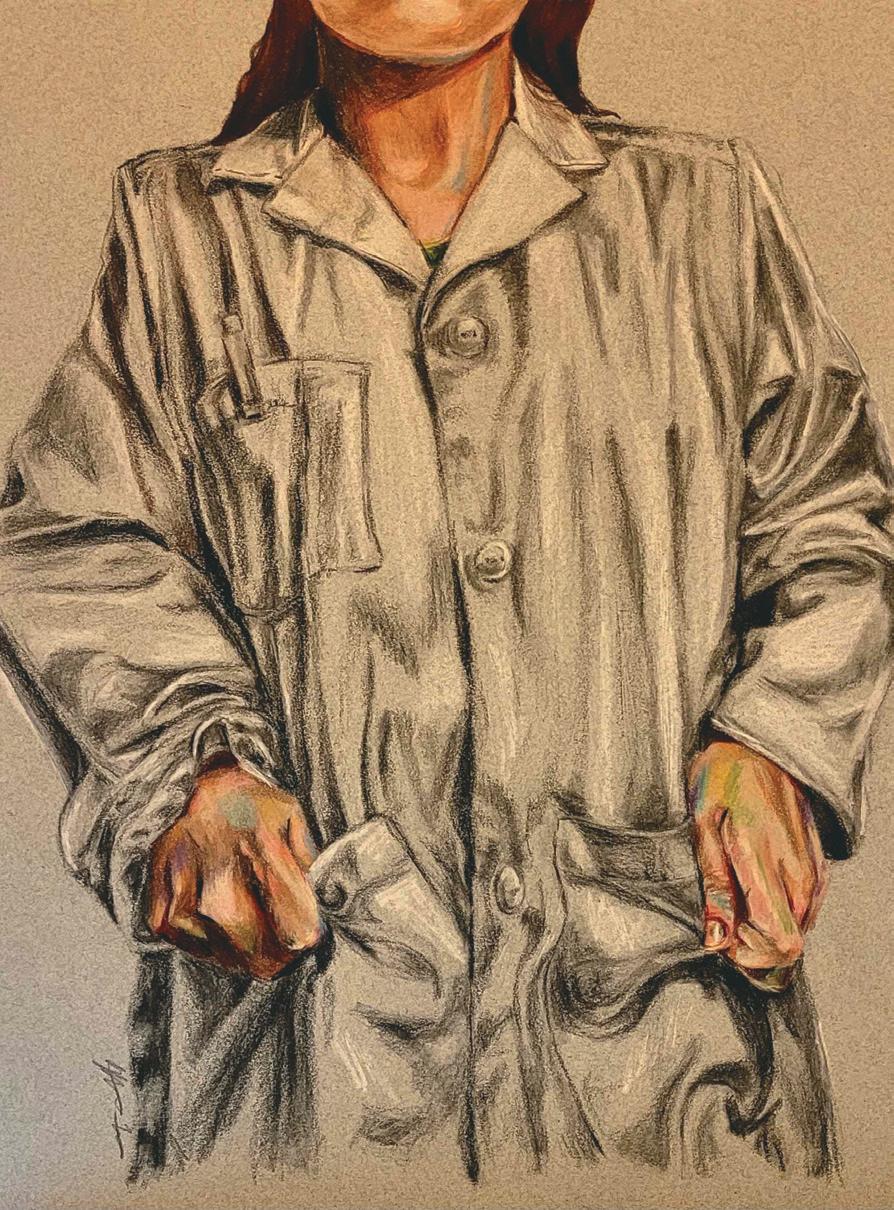

Hans Loja
Student, Long School of Medicine, Class of 2028
i’m a man standing at the silver tide shelling out globs of my golden years
i want to know who i’ll meet today: a 56 y.o. male managing chronic diabetes or a 13 y.o. female referred from her school for acute psychosis
i’m a man anticipating with my hands tied and i wonder who i’ll try to be today:
a young male 2 older 10 wiser than me, or 13 with the resilience of 37, or a 65 y.o. reaping the sow of her golden years night to day as summer dies, i’m silver gold / glob / man, and i want to knowwill i die? (duh. but as whom?)
a 47 y.o. female braving autoimmunity
78 y.o. smiler with impinged lumbar nerve(s) 20 19 18
15 y.o. male / female, inexplicable trauma when do i start? when do i
31 y.o. quadrilingual male neurosurgeon a 30 y.o. with superhuman, prestigious charm and the 27 y.o. who can call their bluff expeditiously everyone is efficient, dear, paragon
so who will i fail at today? photographical prodigies of 20, 15, 10 years but i stand 9 silver tide 8 for a reason 7 whi
79 y.o. with Alzheimer’s, news to break the 46 y.o. with a hyperintelligent gene sequencing and the children who have a right to know (this is / i am impinging / chronic, inexplicable trauma)
68 y.o. wife and her husband is “1955 - 2024” as etched forever on a temporary stone. and selfish as it may be the news i want to break is: i’m the most difficult (5) of men, thinking i could trans(4)m into everybody, revel in all man’s goodness and transcend like The Holy Trinity (3) like logos, pathos, and ethos (also 3) if i just lived through man over and over again and yet for, all the years of sadness and pining i have nothing (2) offer anybody even drool condenses into a web in my mouth so instead of being helpful or witty or good i sit down on the floor, cry and manage to let slip:
i’m just 1 man
A big theme of my life (in part due to my love of math) and a motif in this poem - is numbers, which initially represent objective data, but can become methods of incomplete comparison and arbitrary countdowns that bind us to self-destructive tendencies if we aren't careful. In terms of the poem's speaker, I've taken steps in my life (some successful, some not) to reduce the power he has over me, and I hope over time to indulge him less and less until he leaves me alone.
"The Places We Go, Part 2"
Digital Photography
Craig Sisson, MD, MBA, AEMUS Faculty

Through creative expression and reflection, we nurture our collective humanity and cultivate meaningful connections among students, faculty, staff, patients and friends of UT Health San Antonio. We are .
